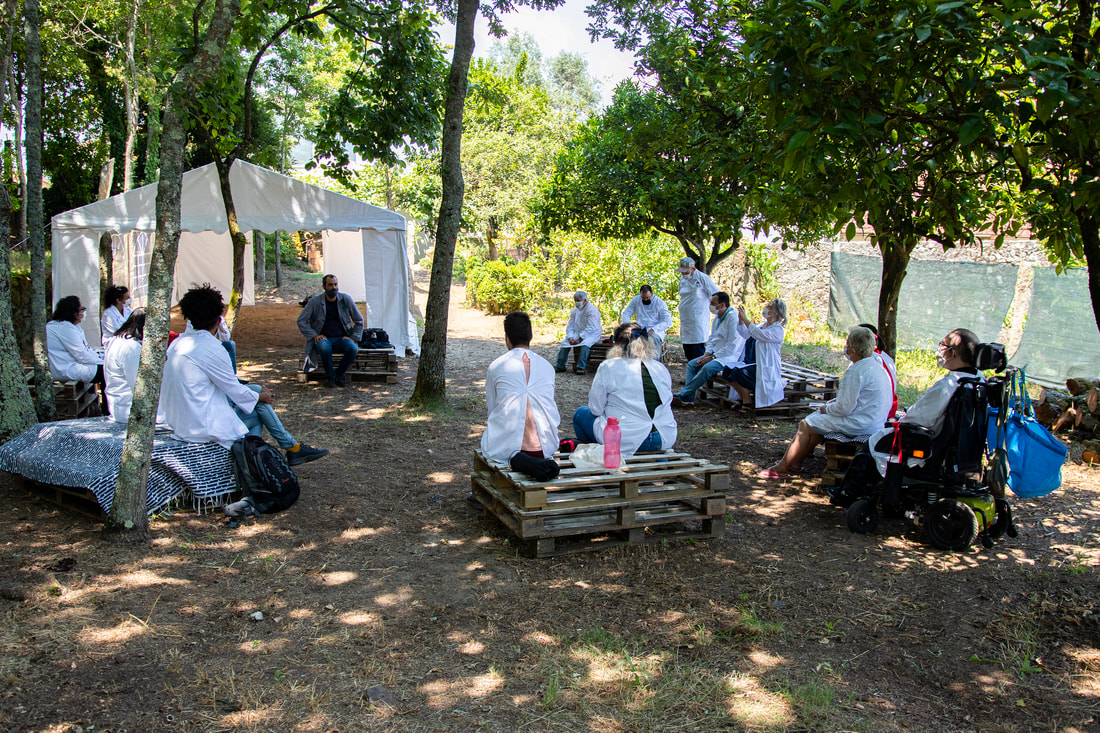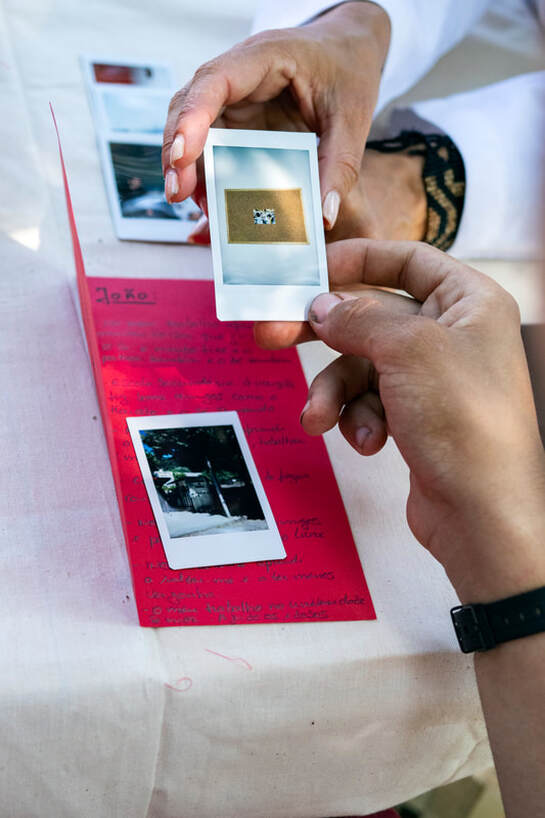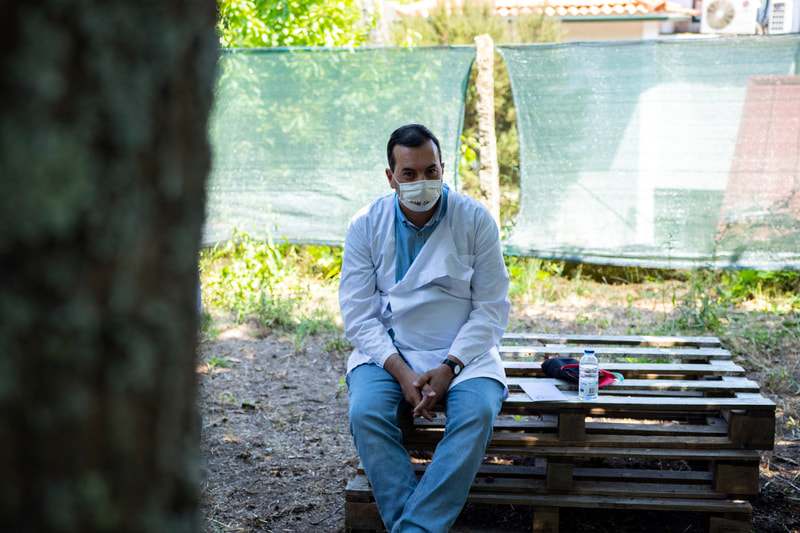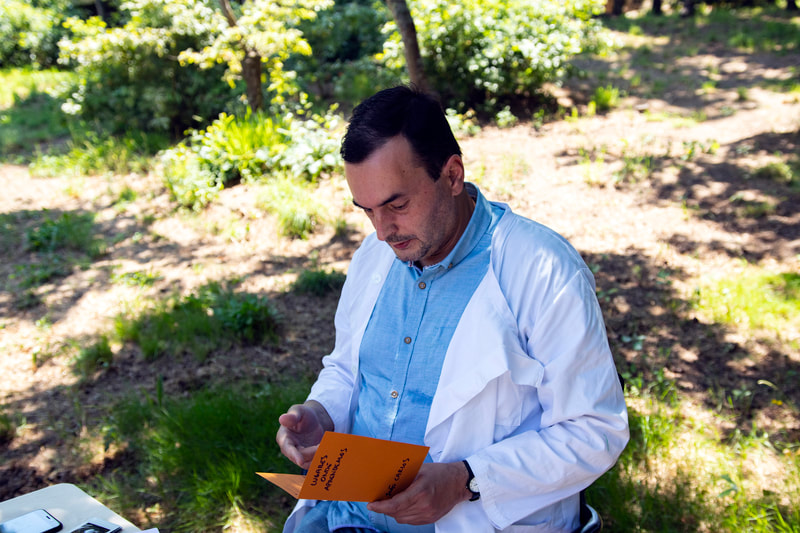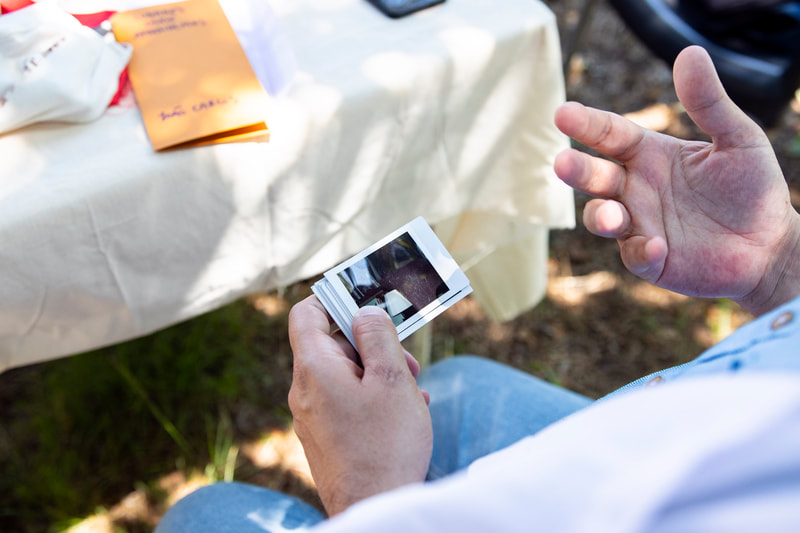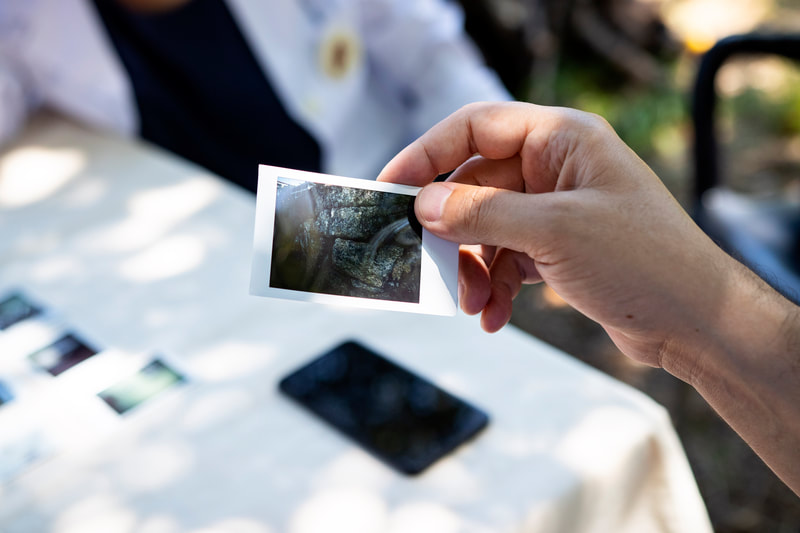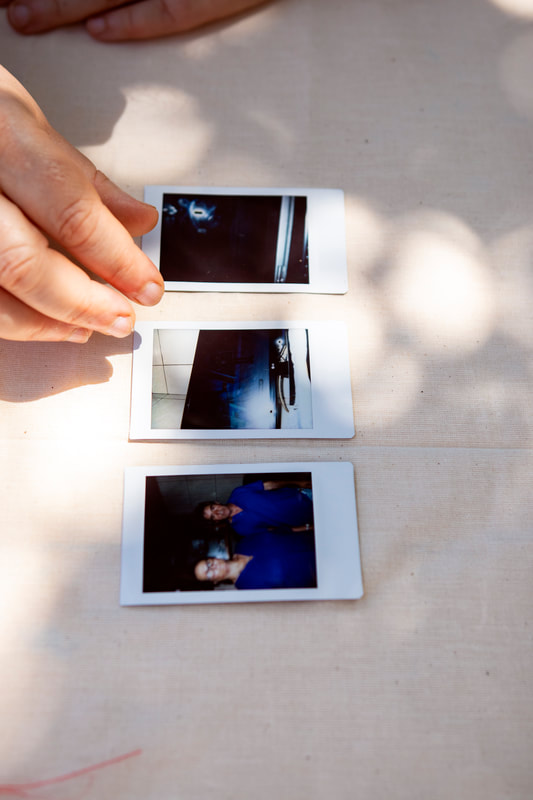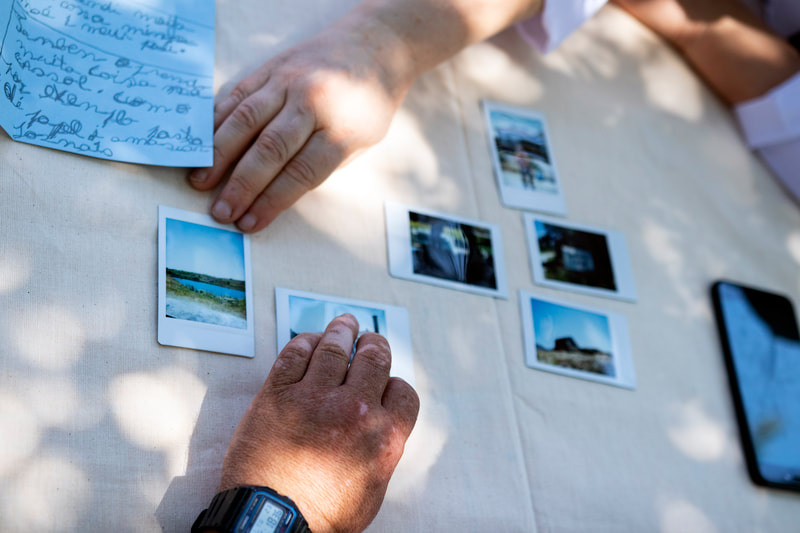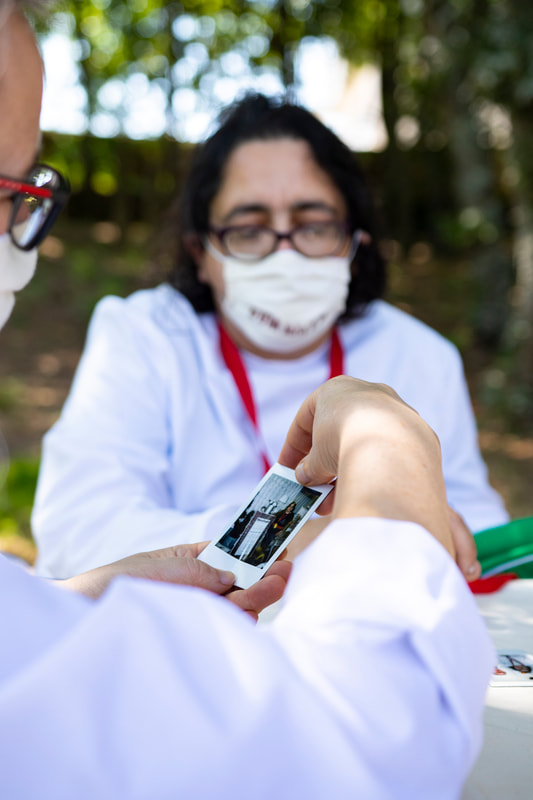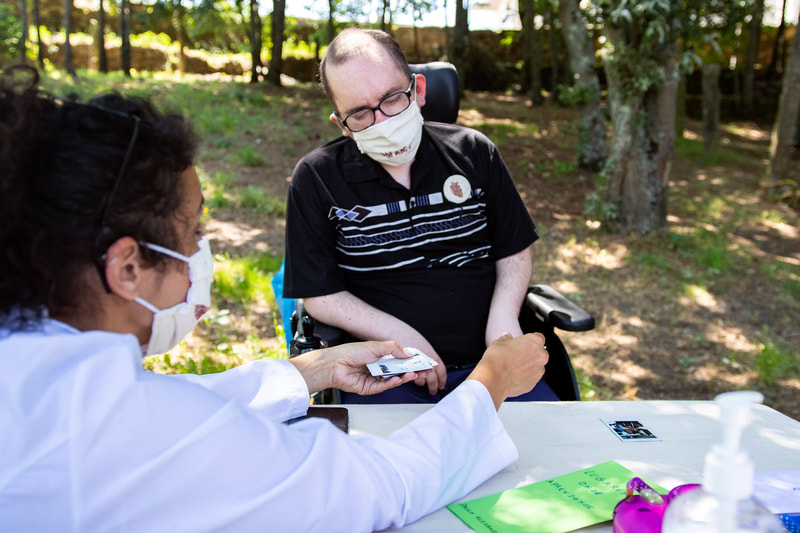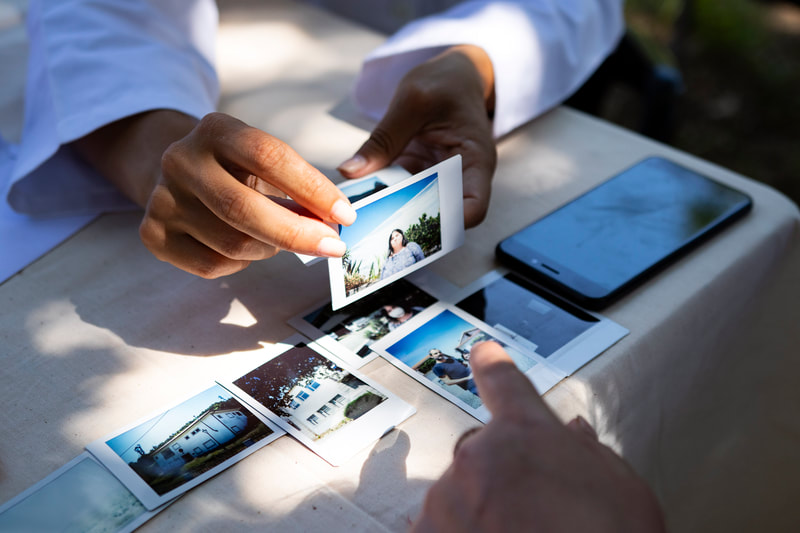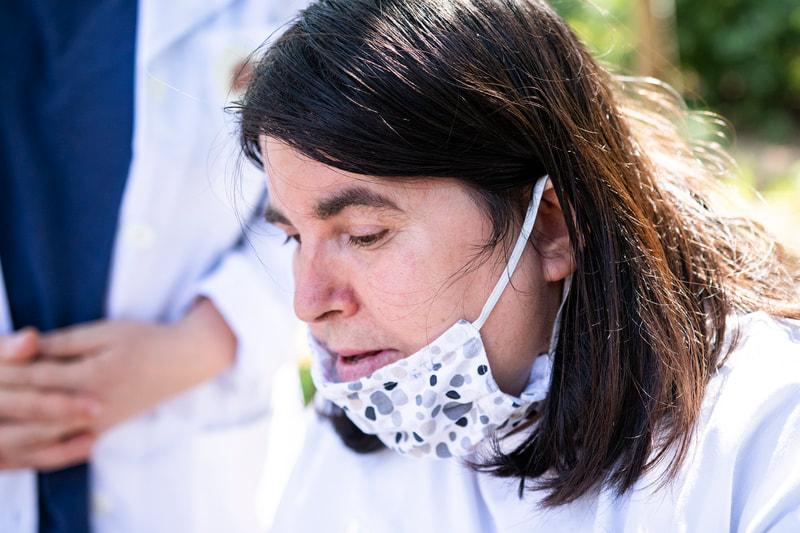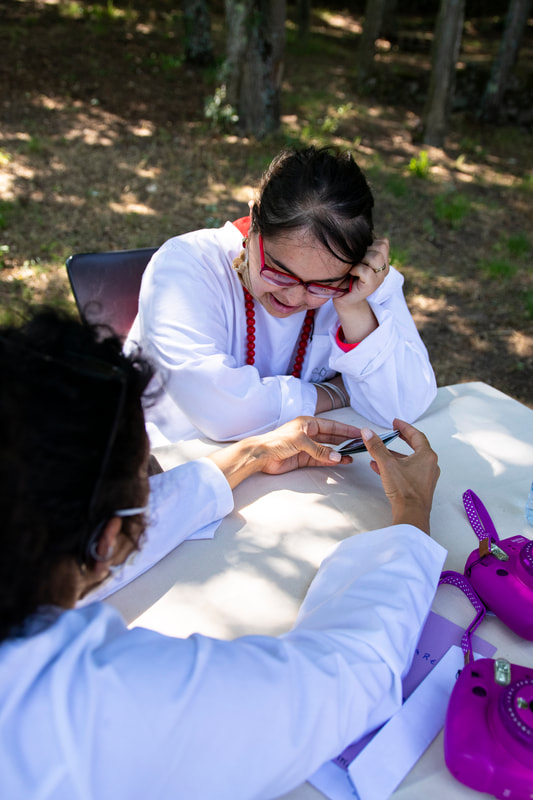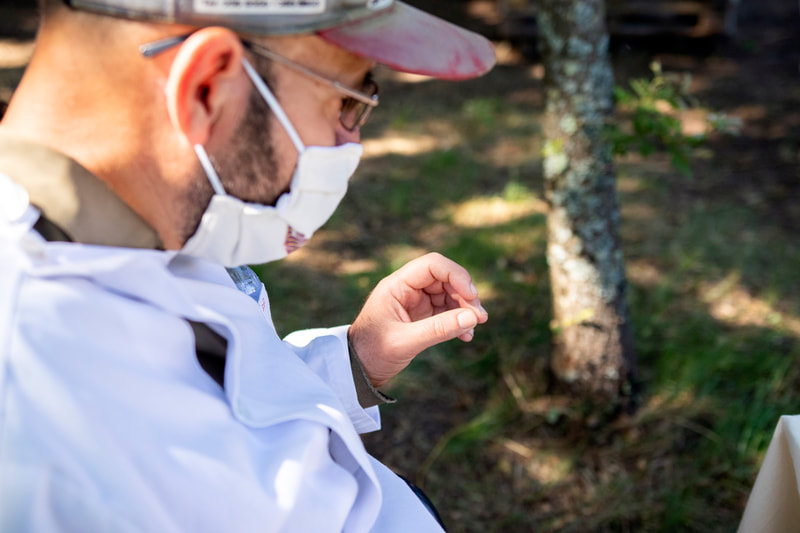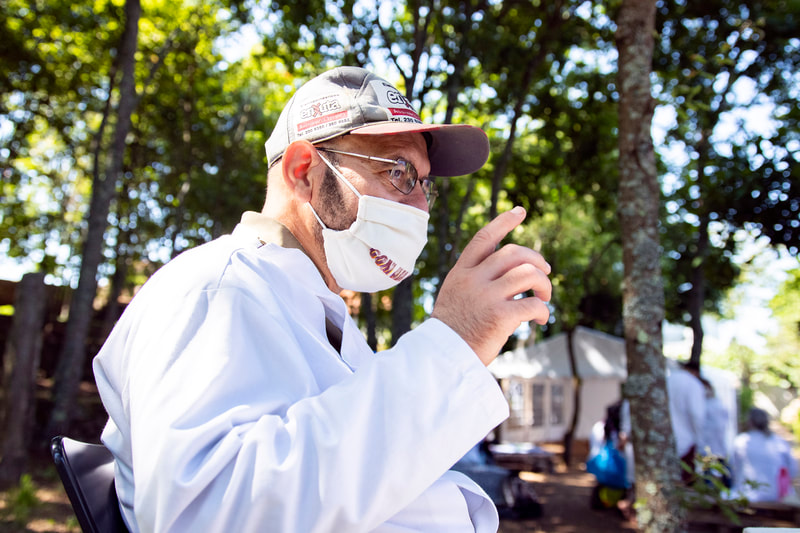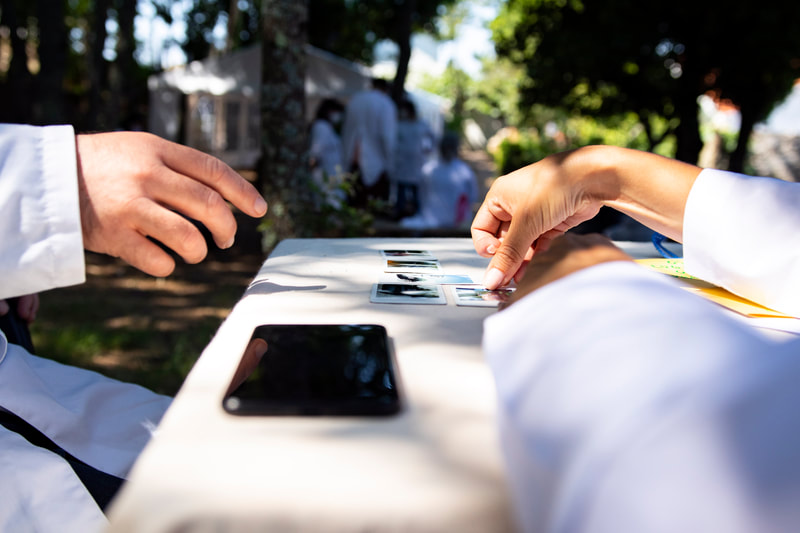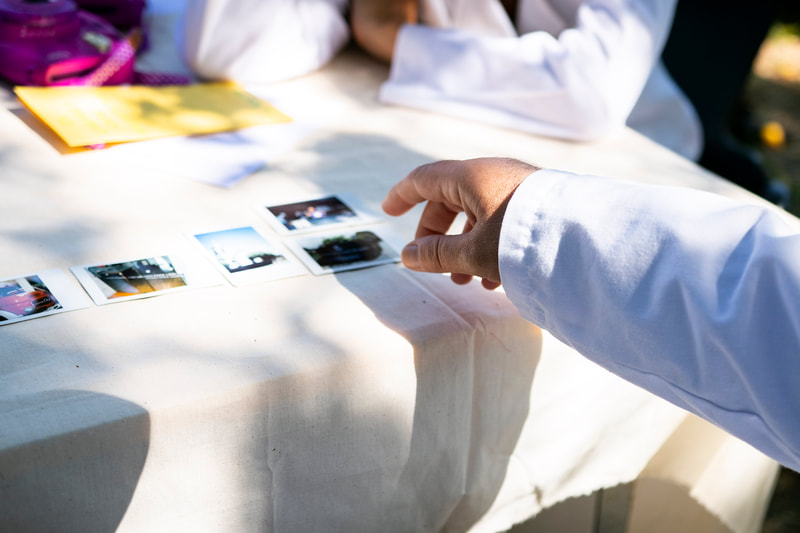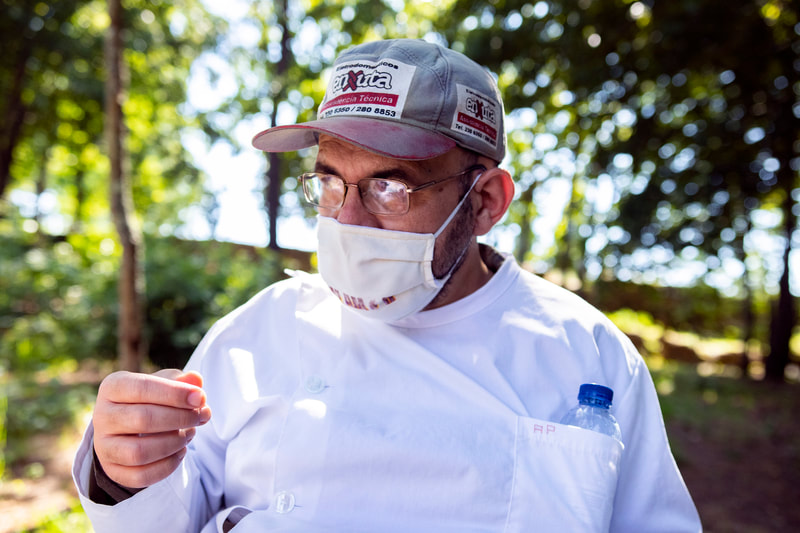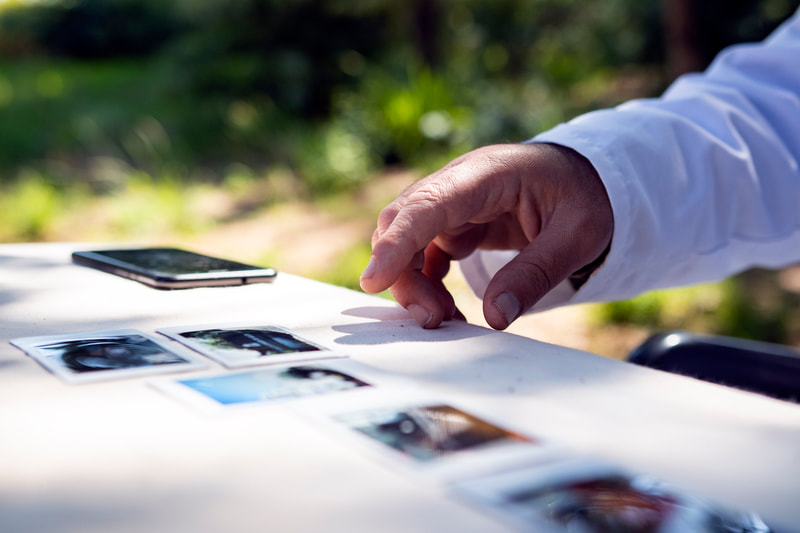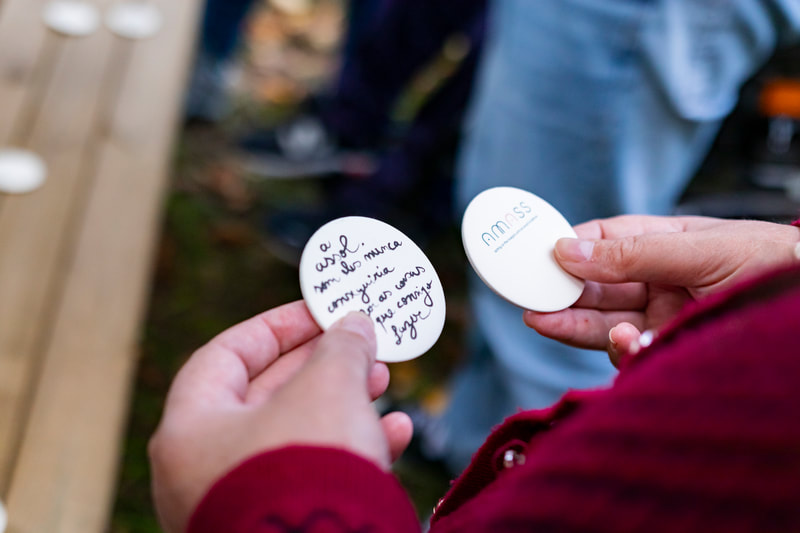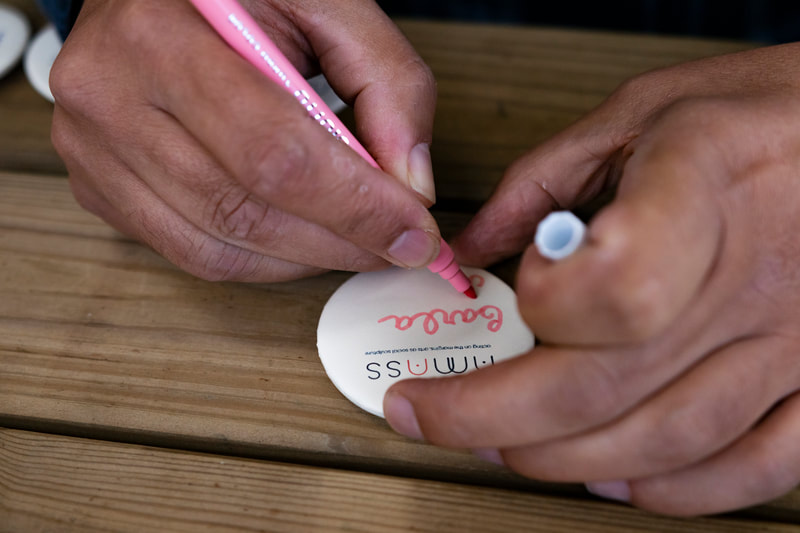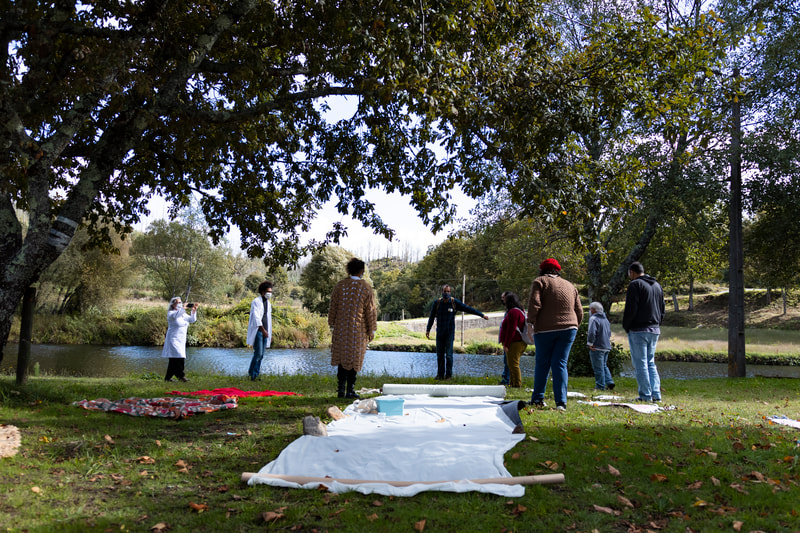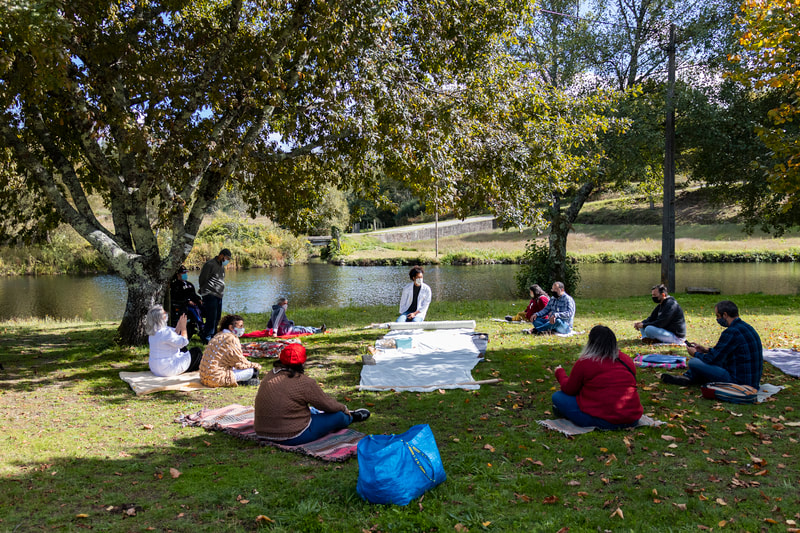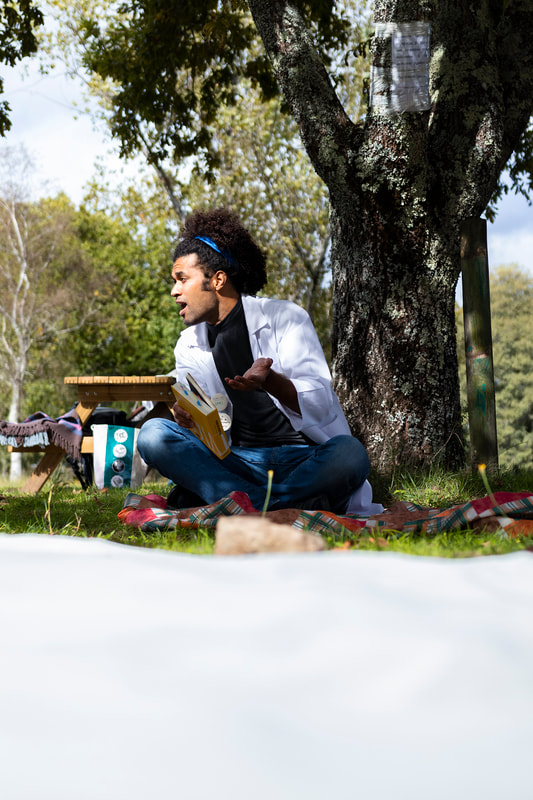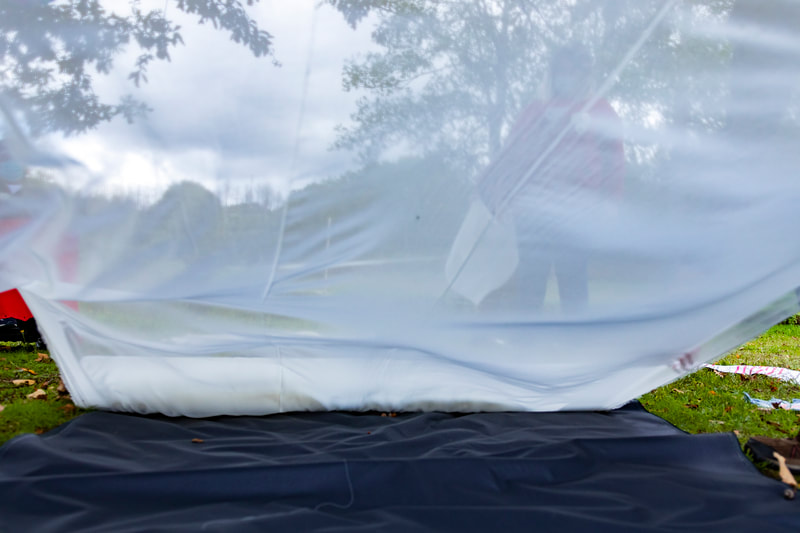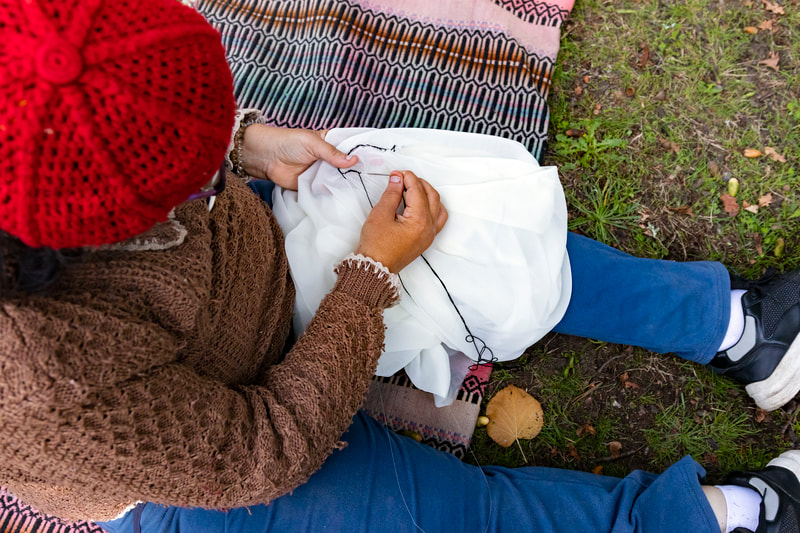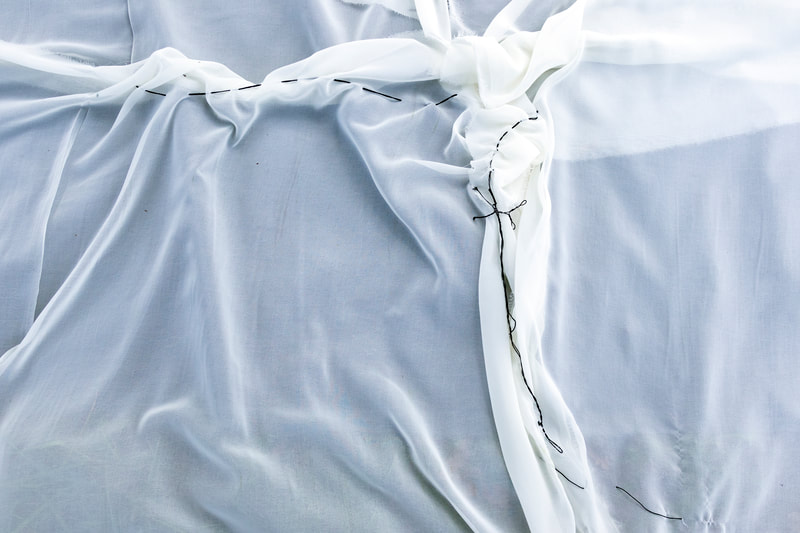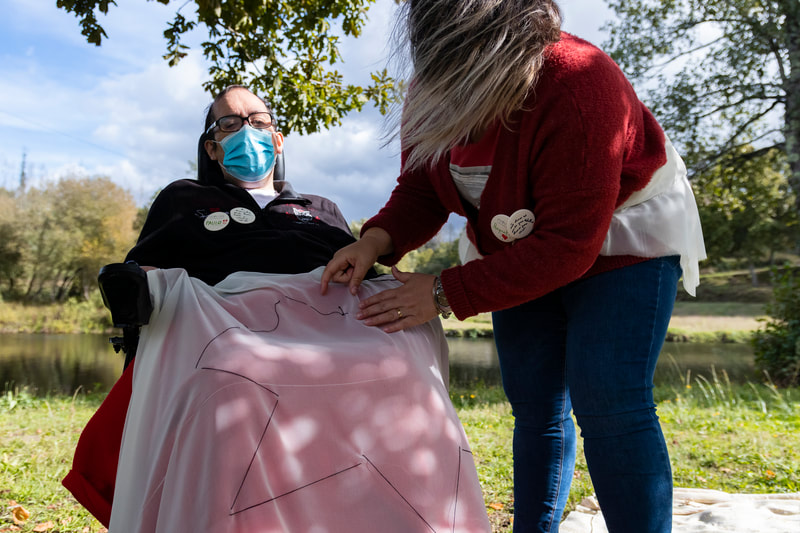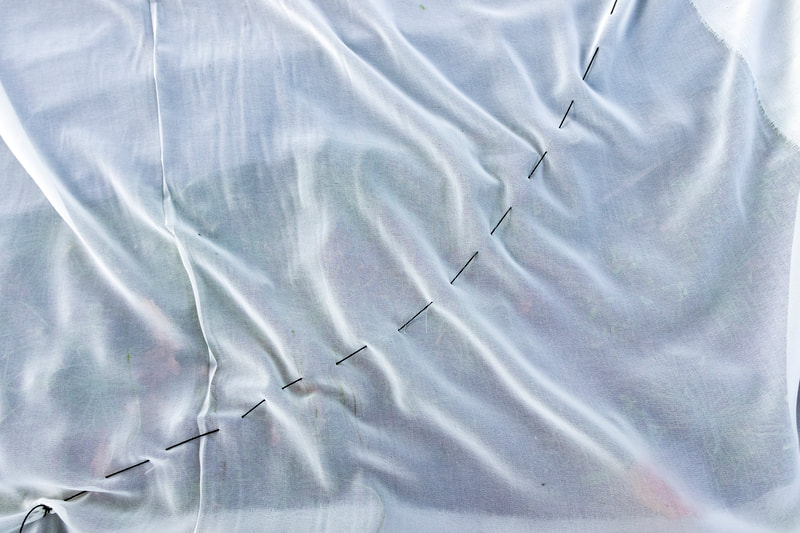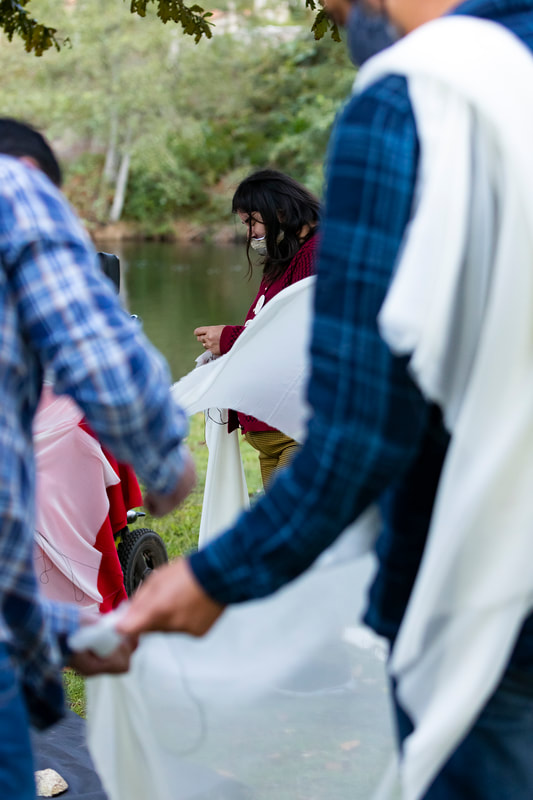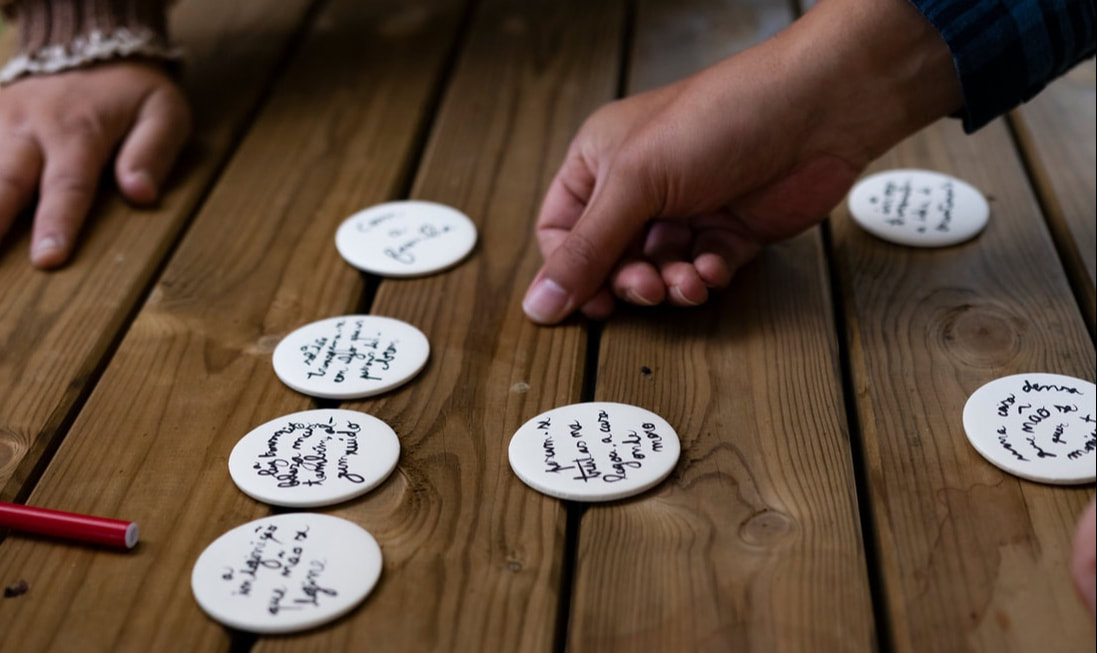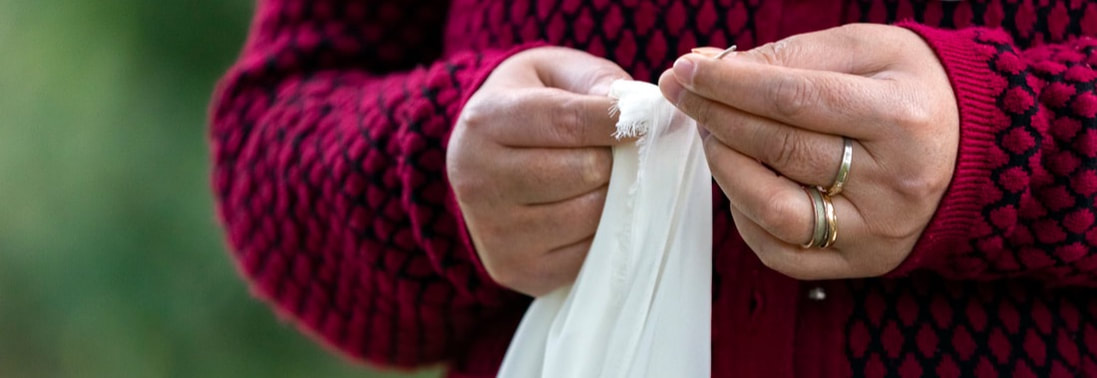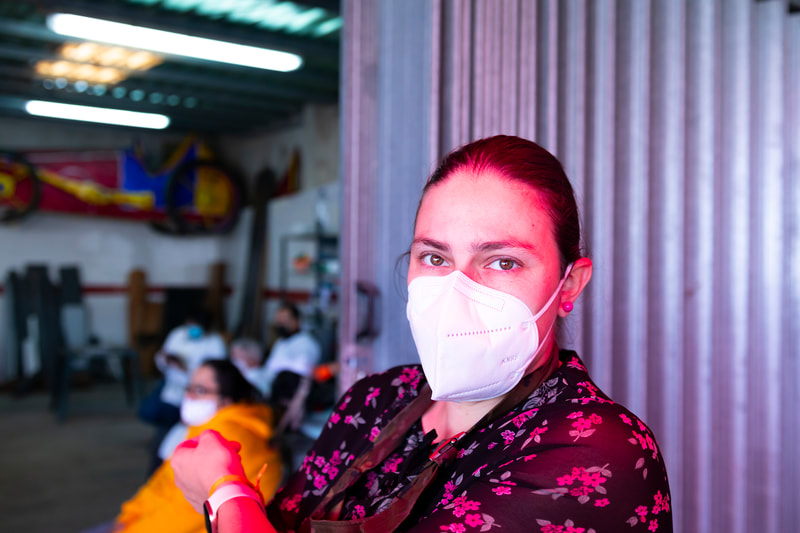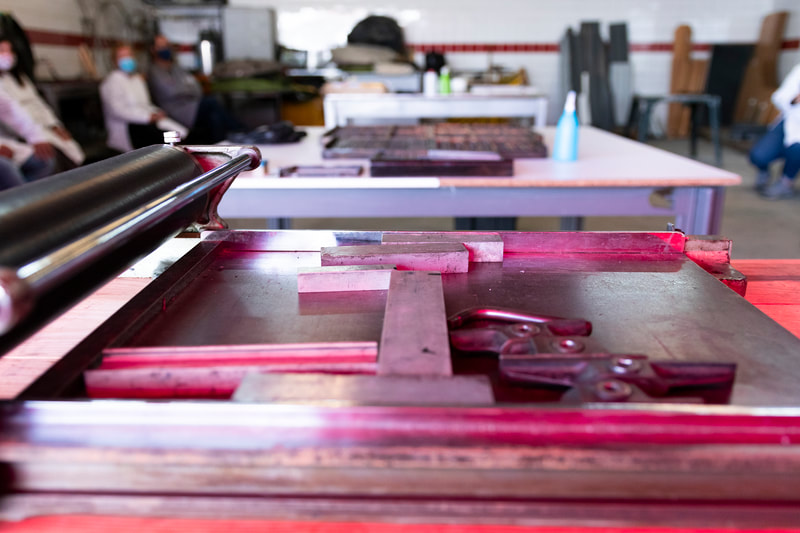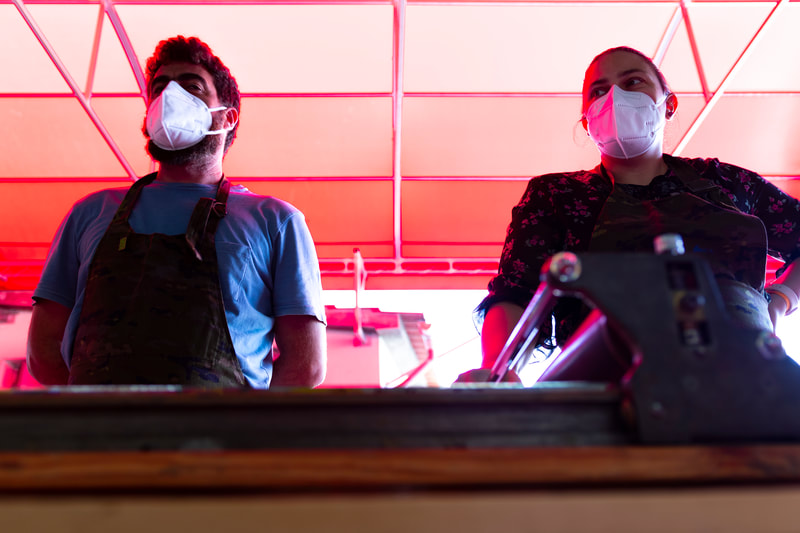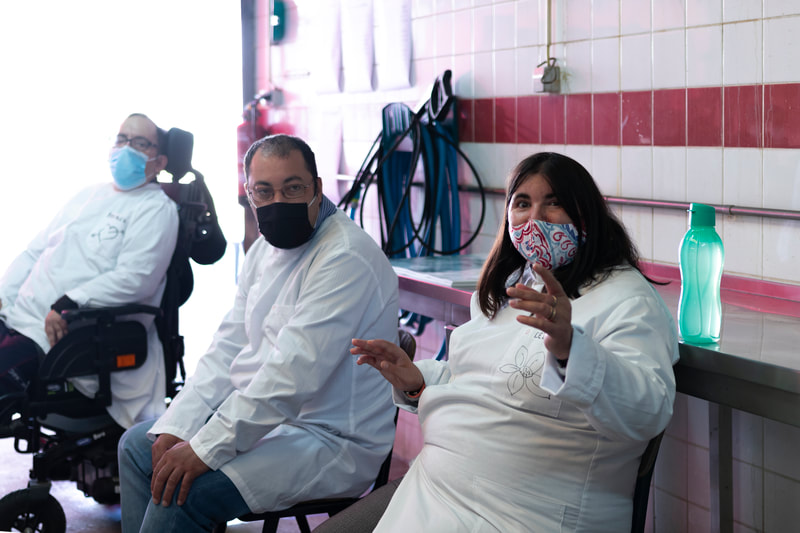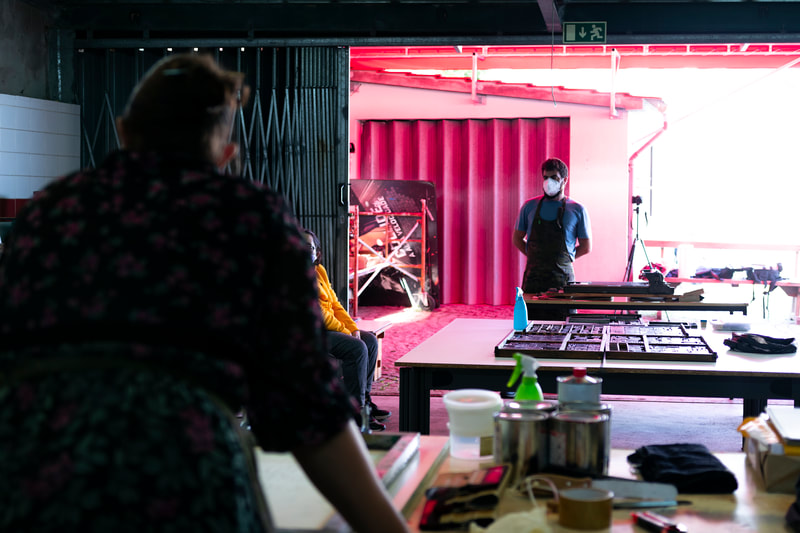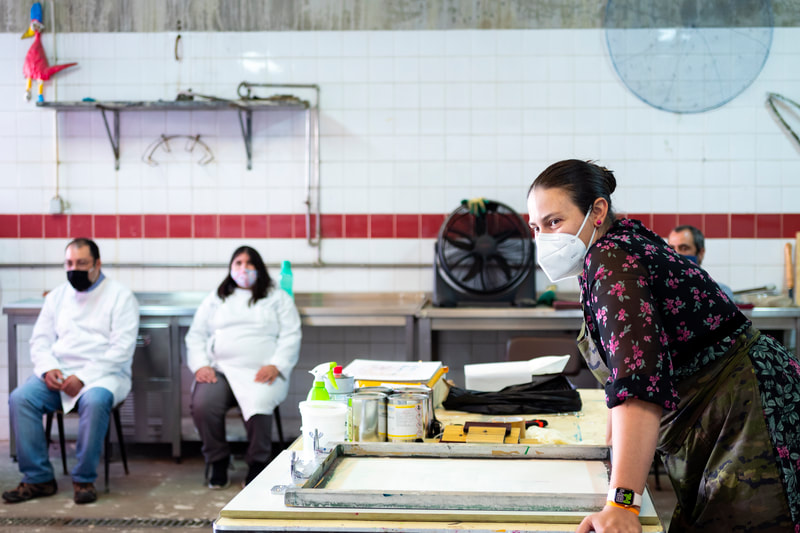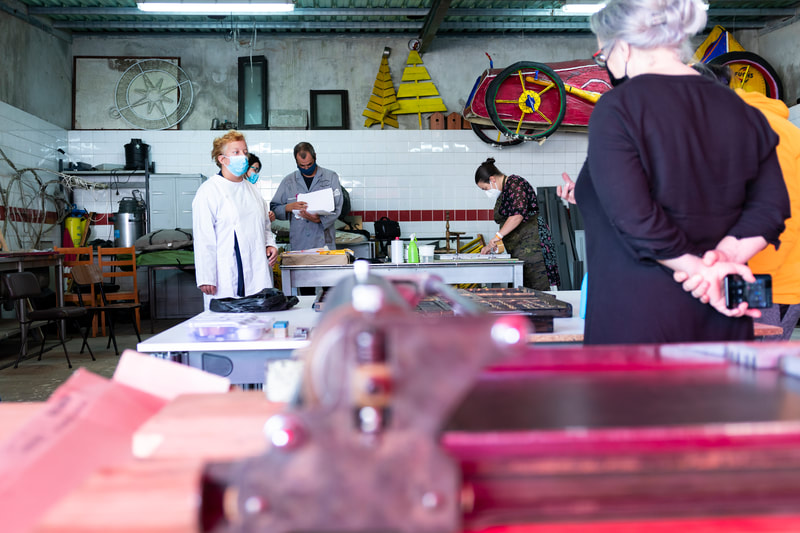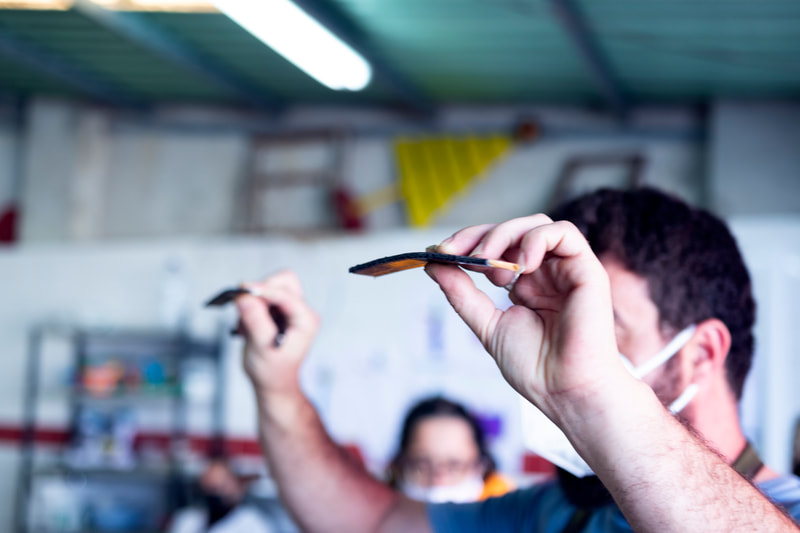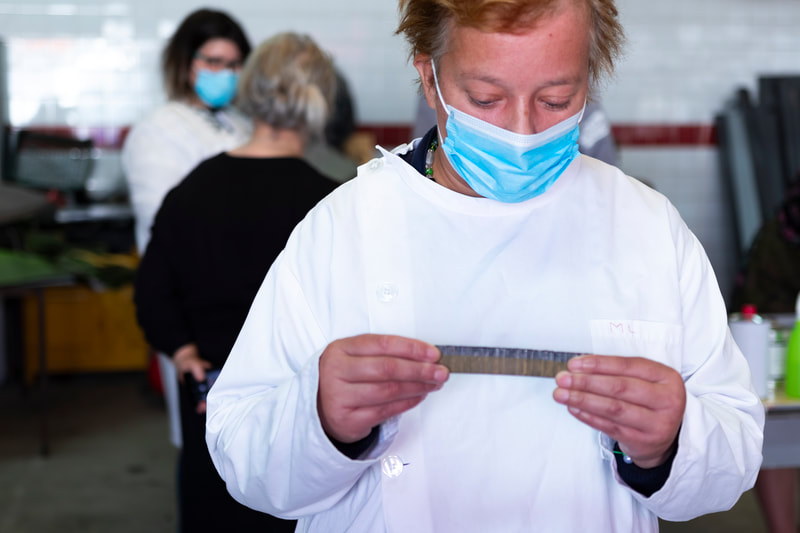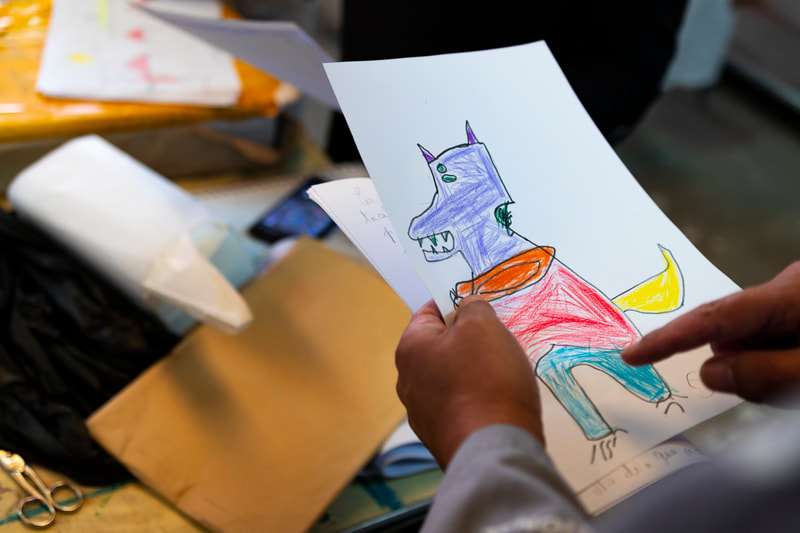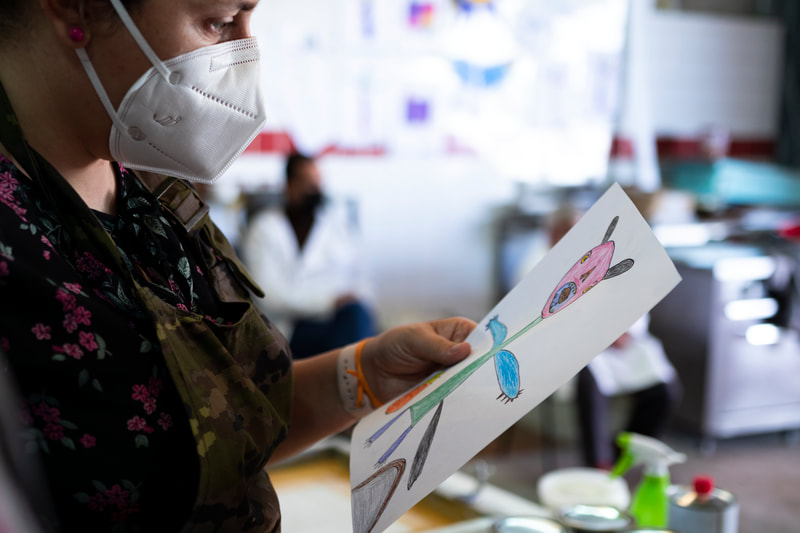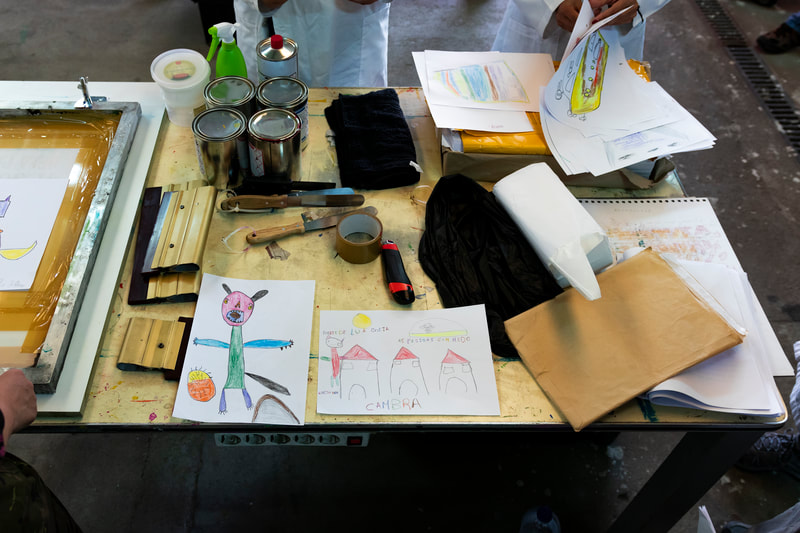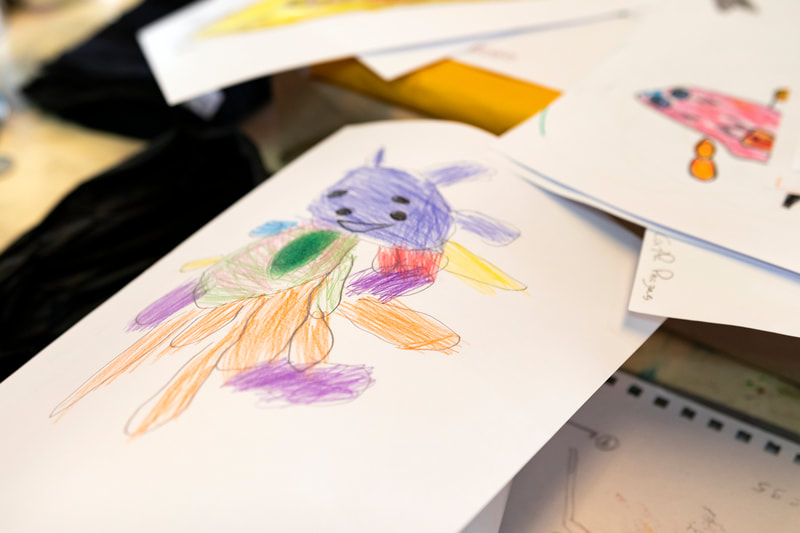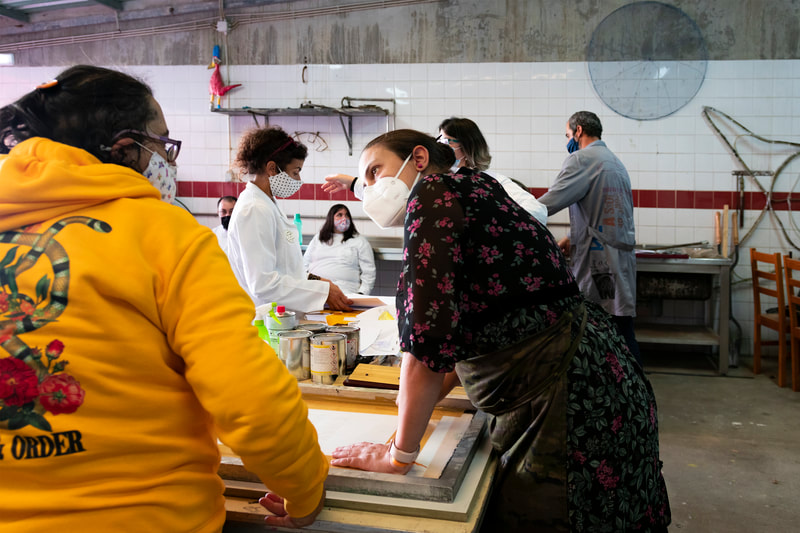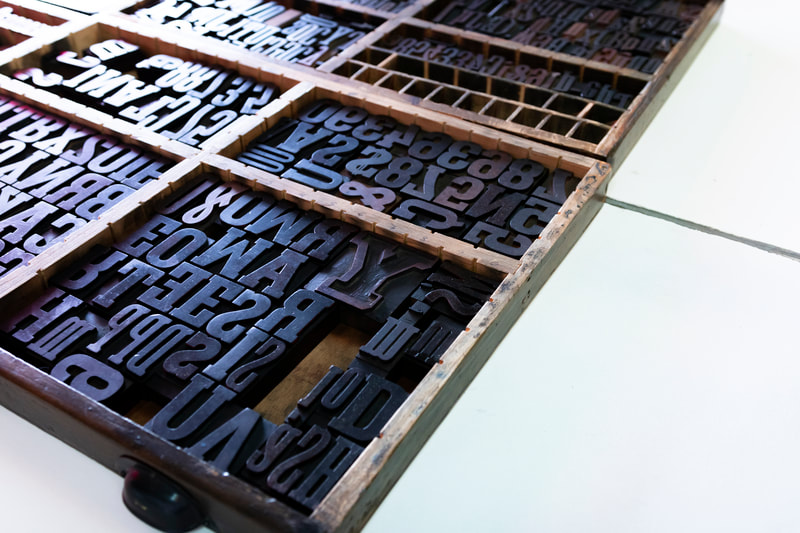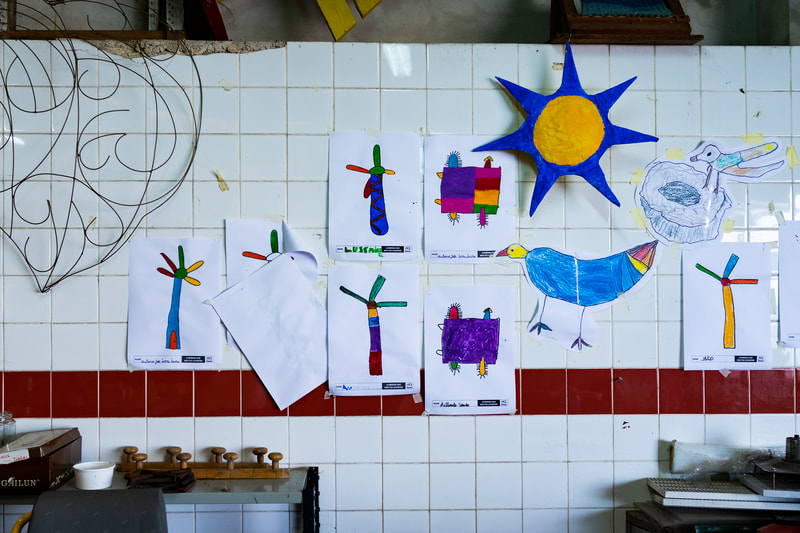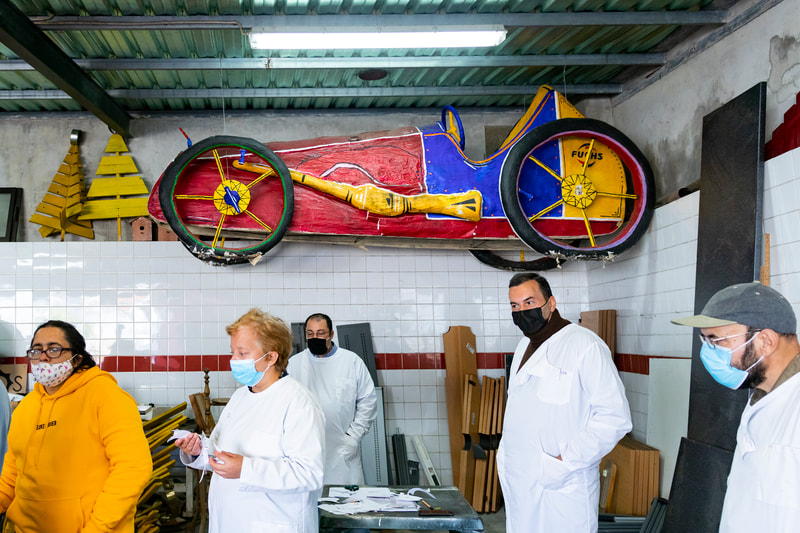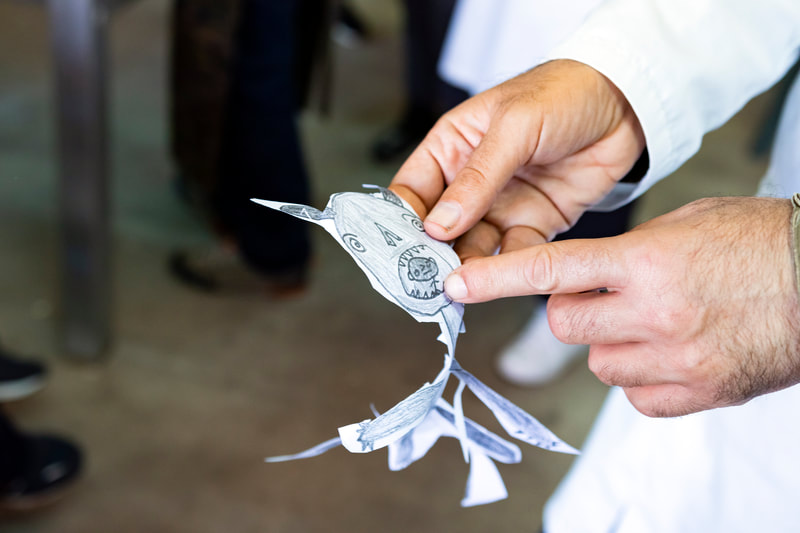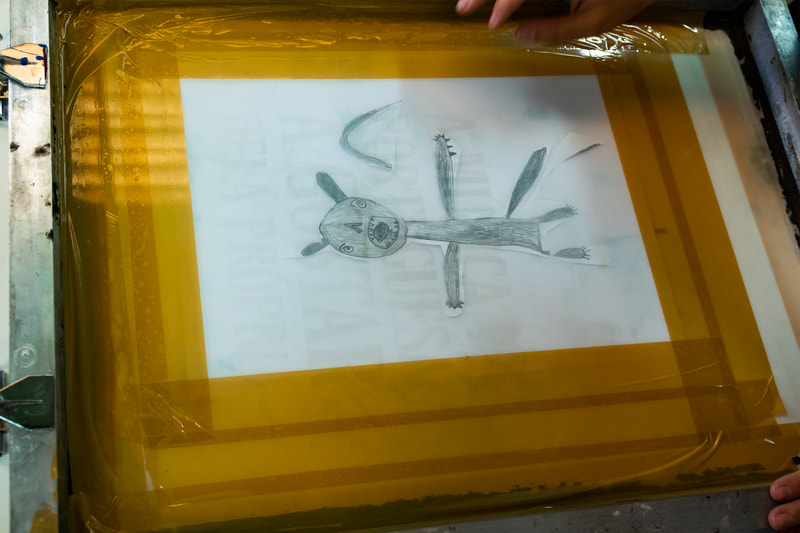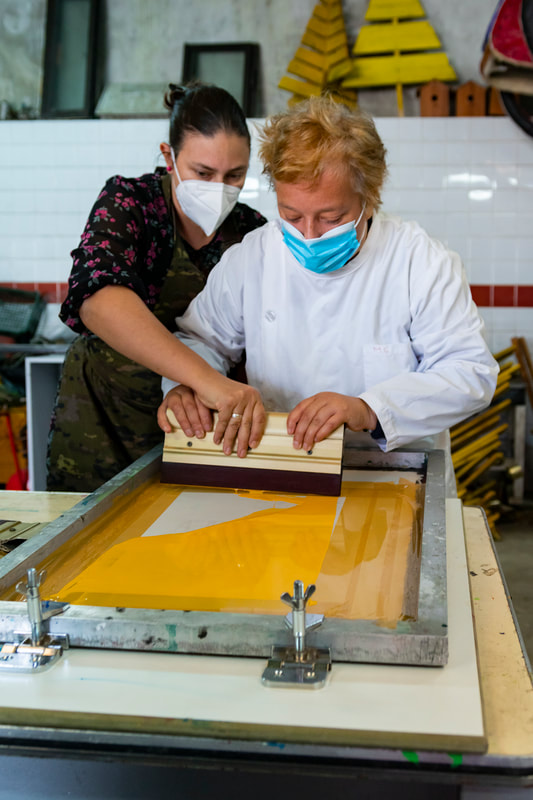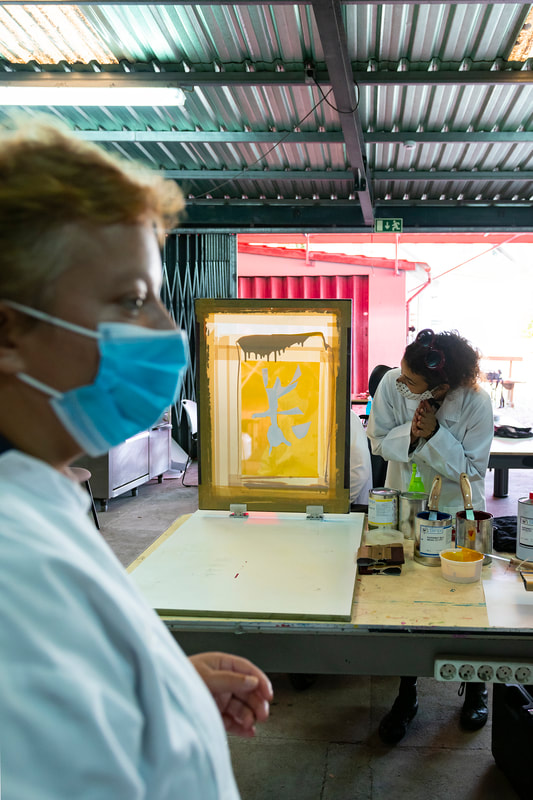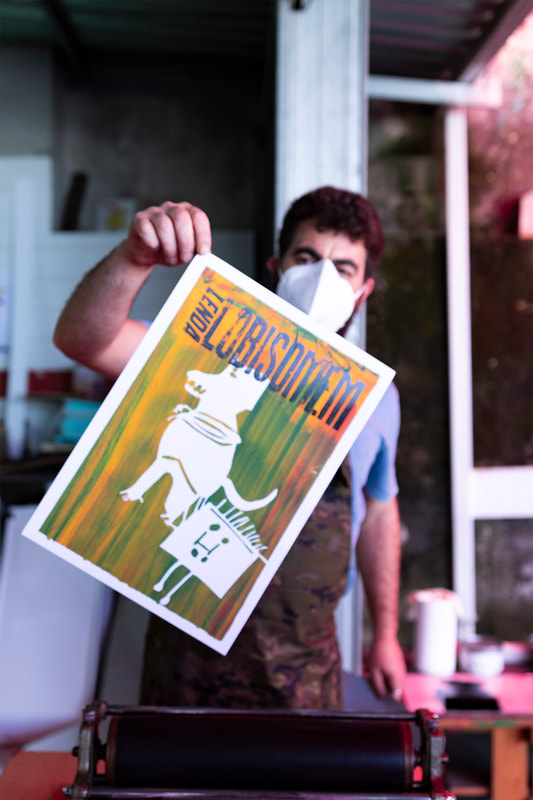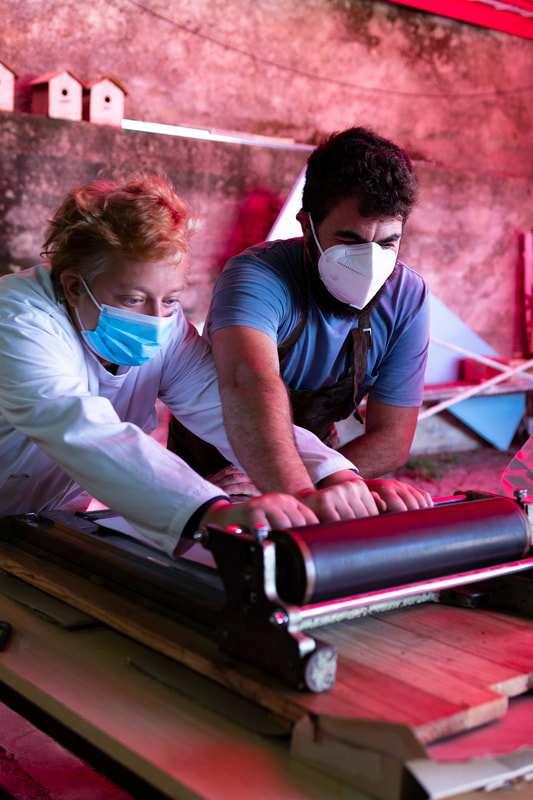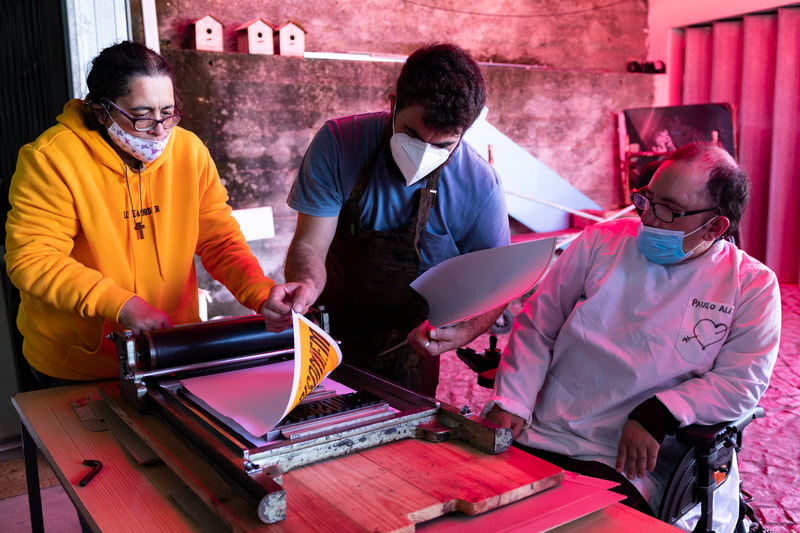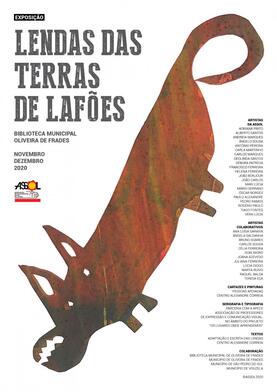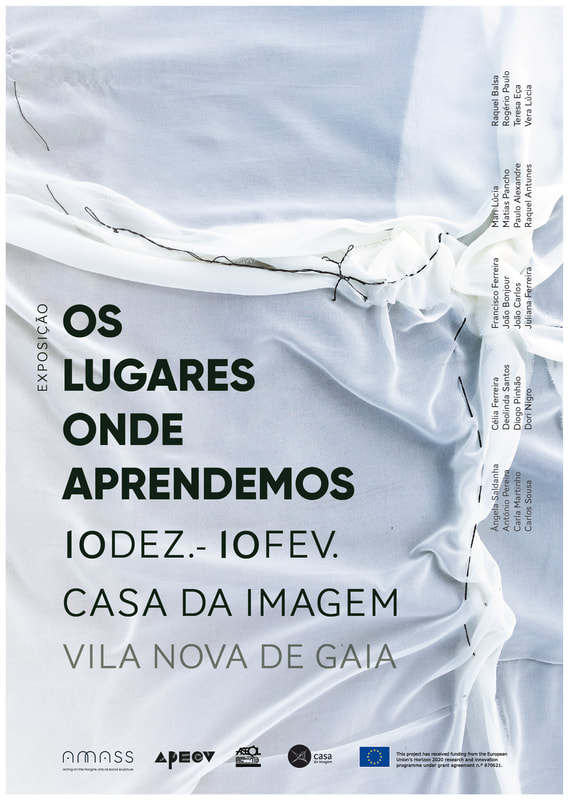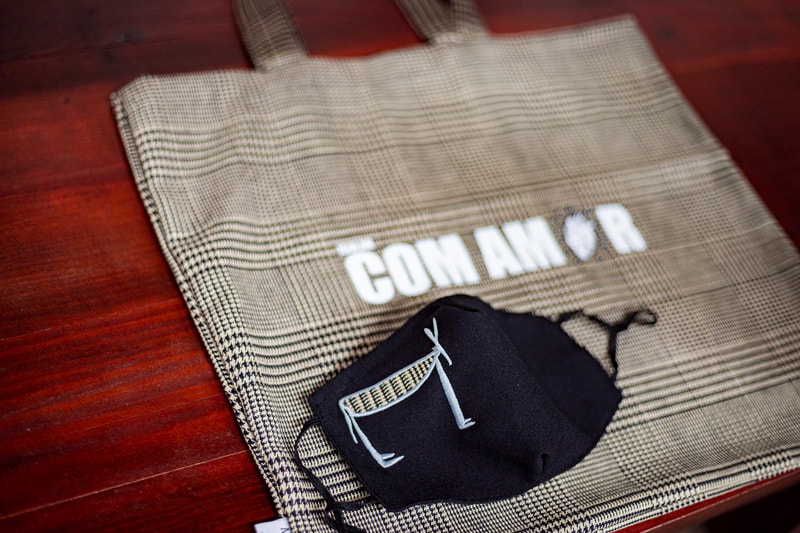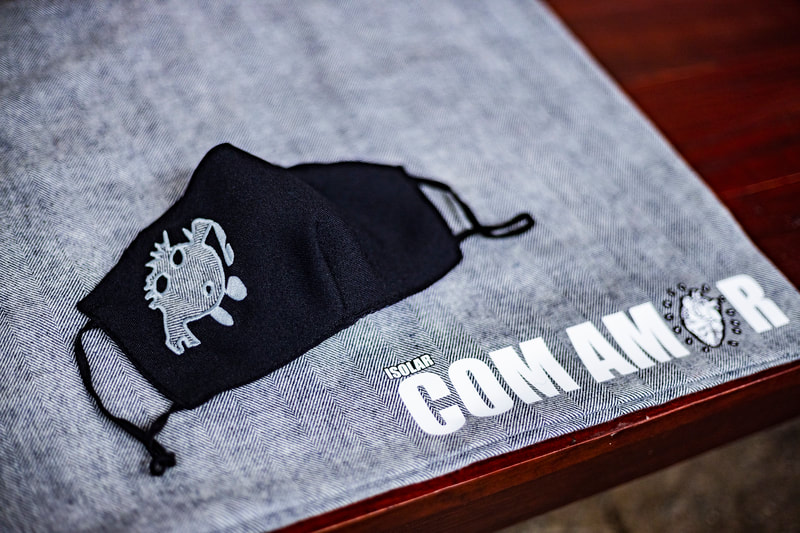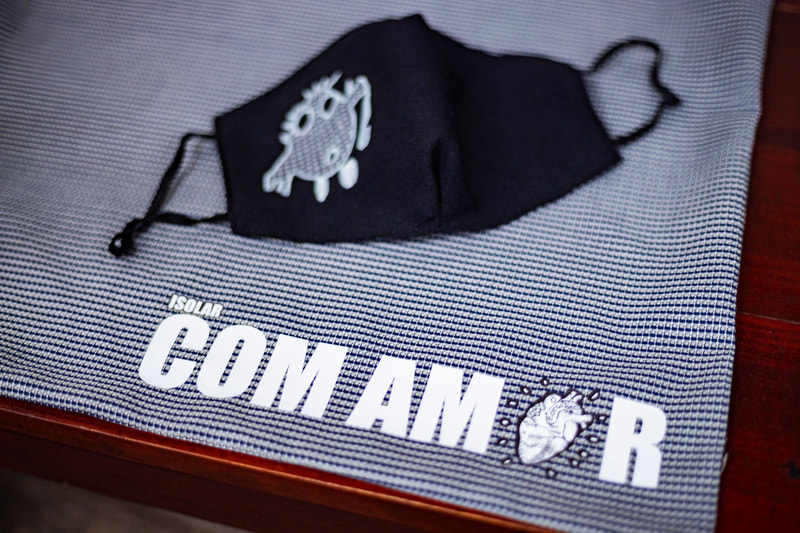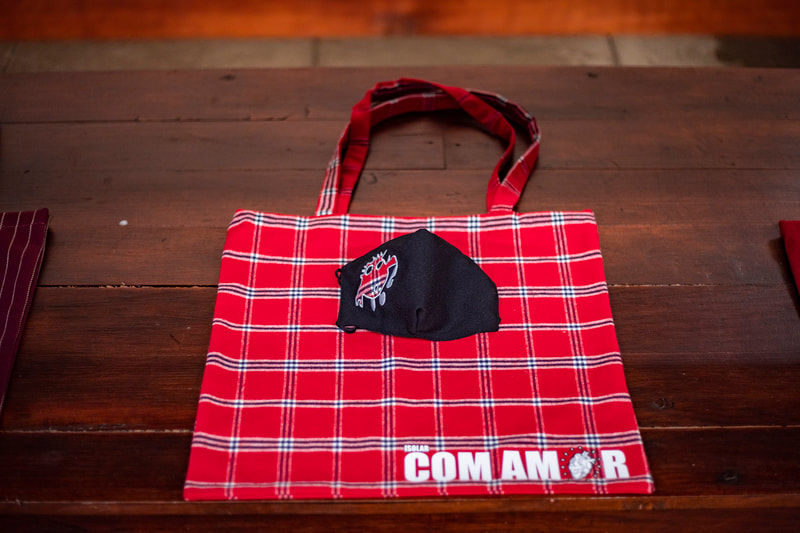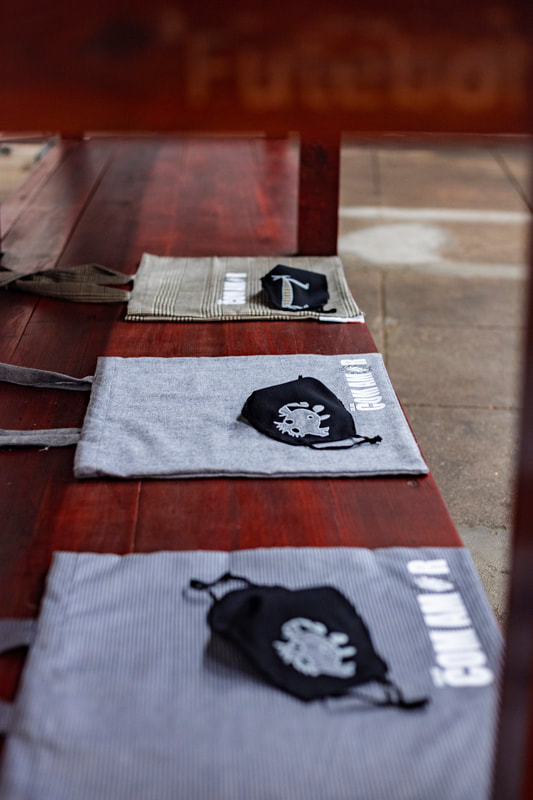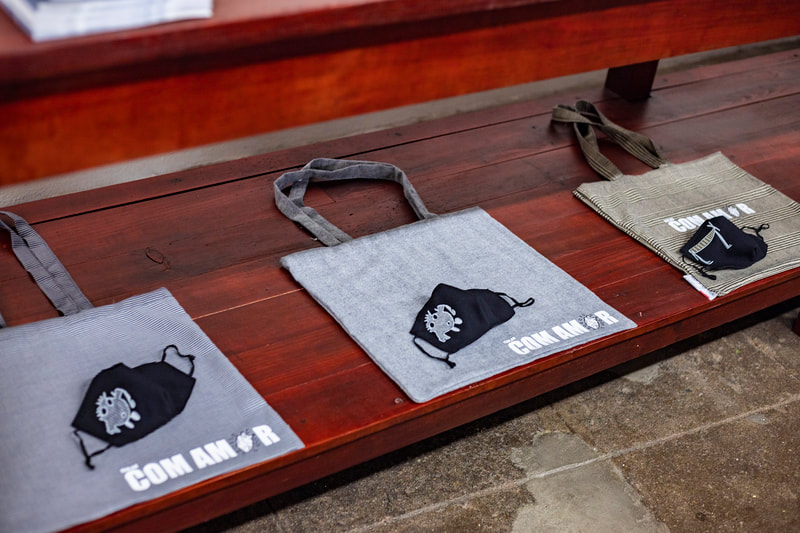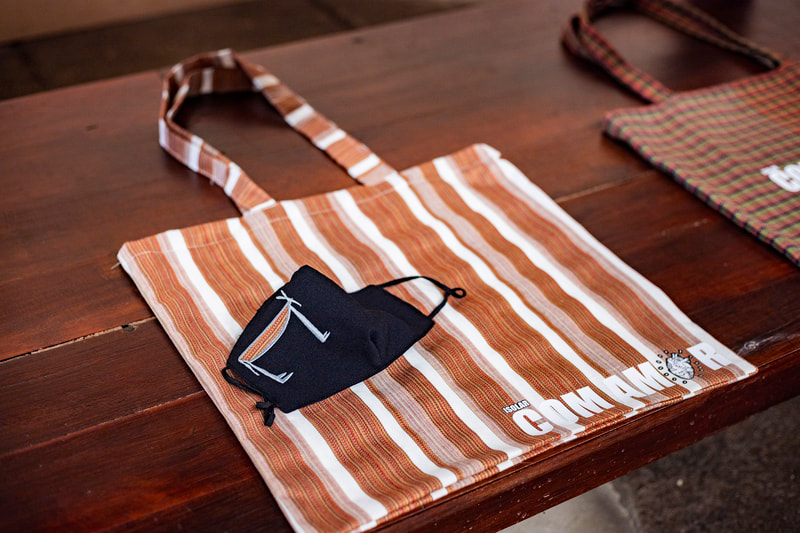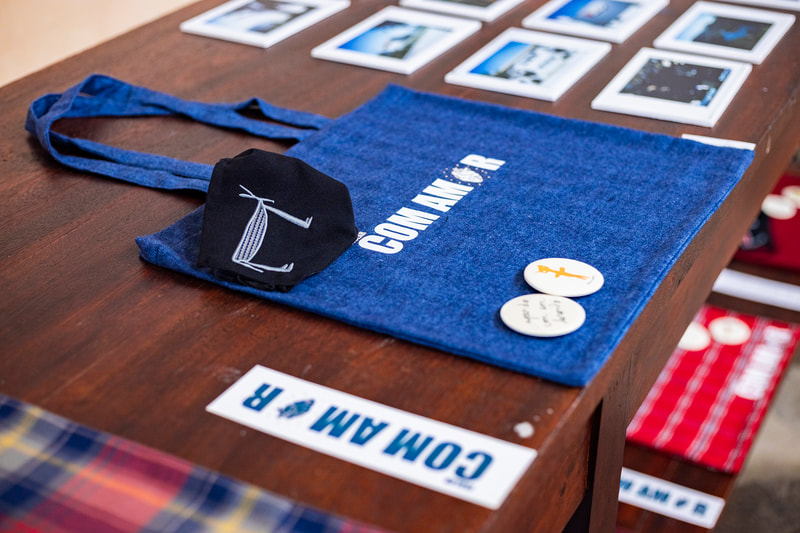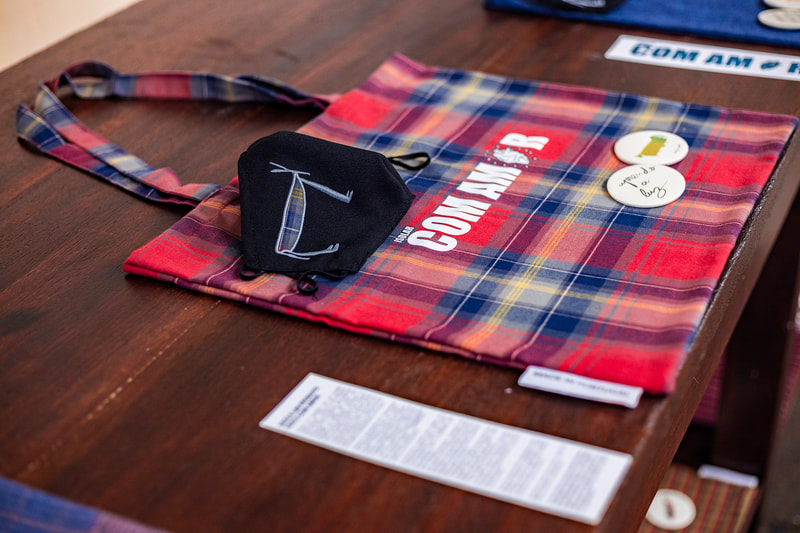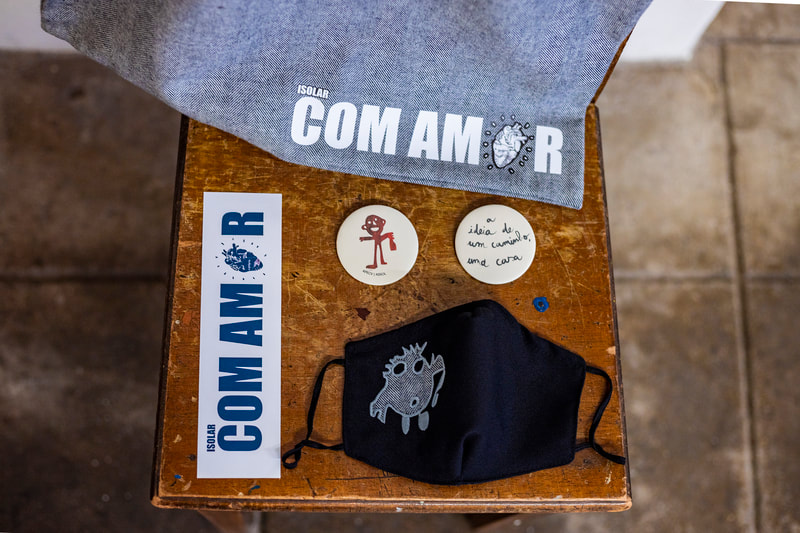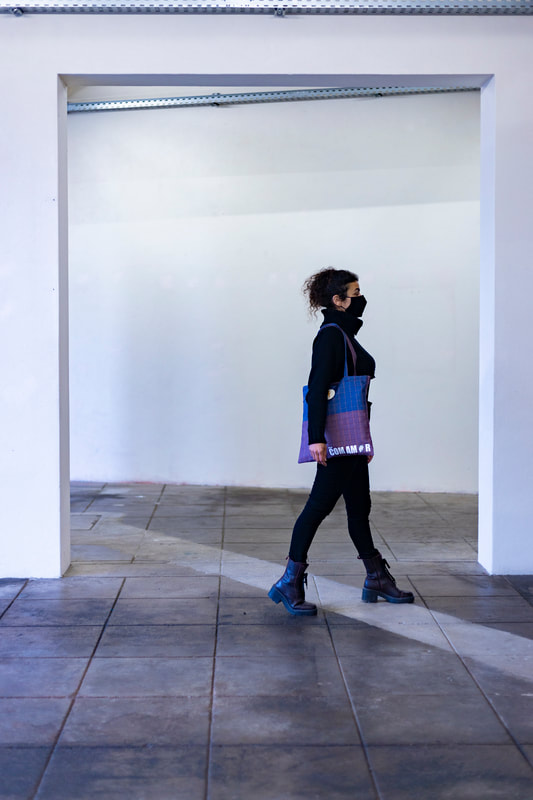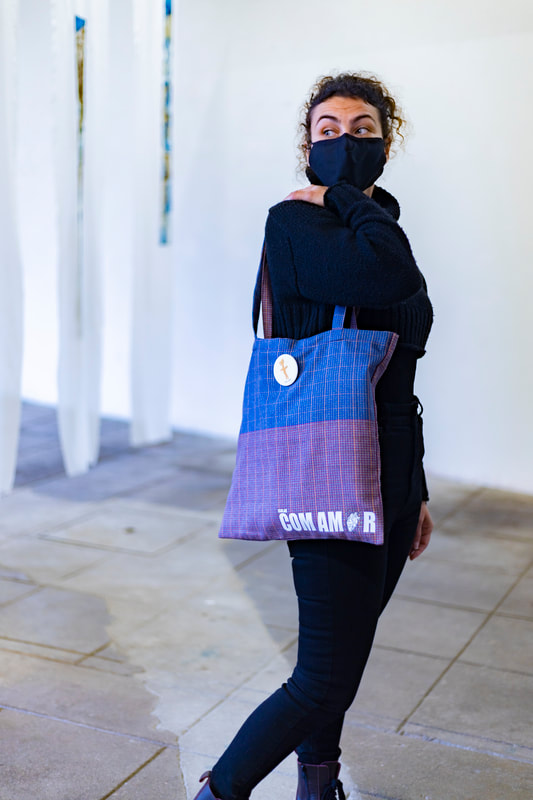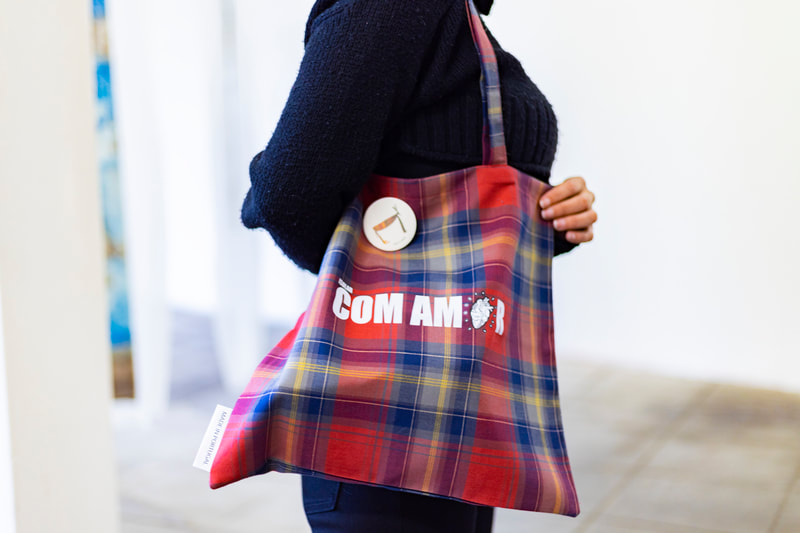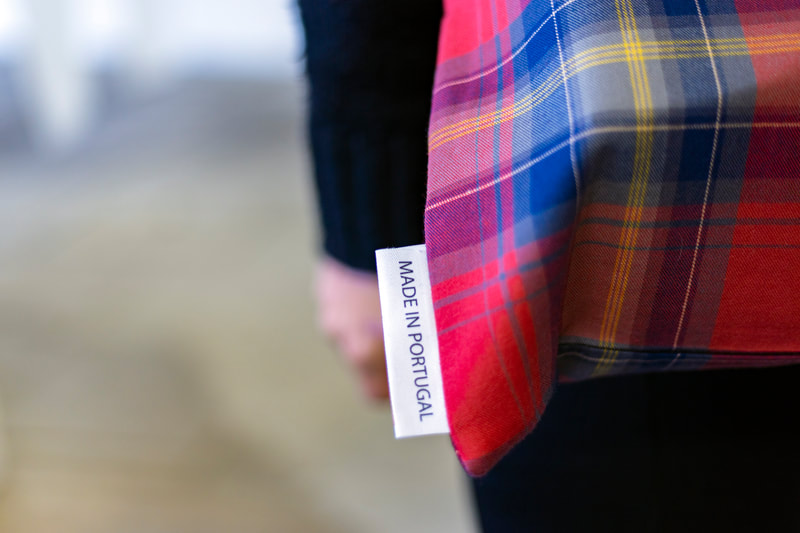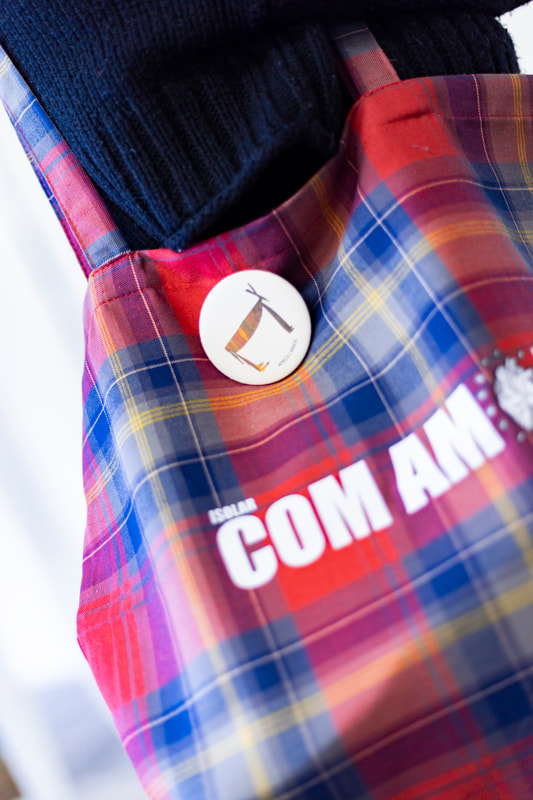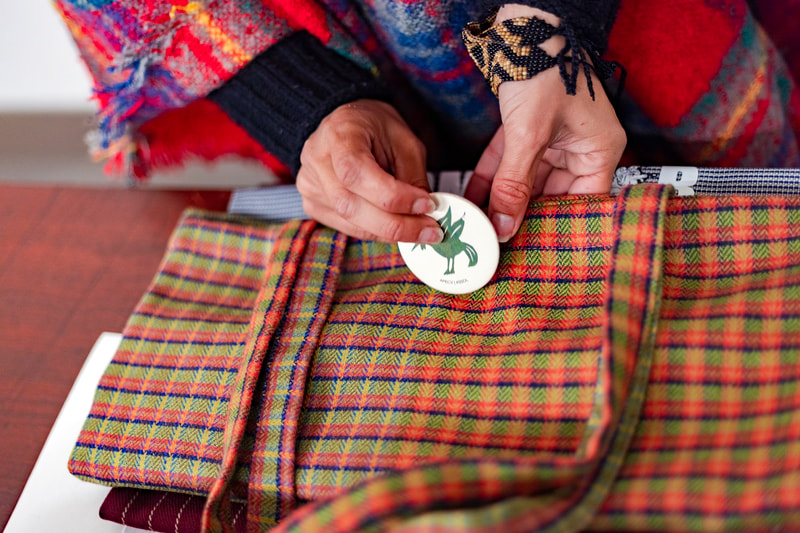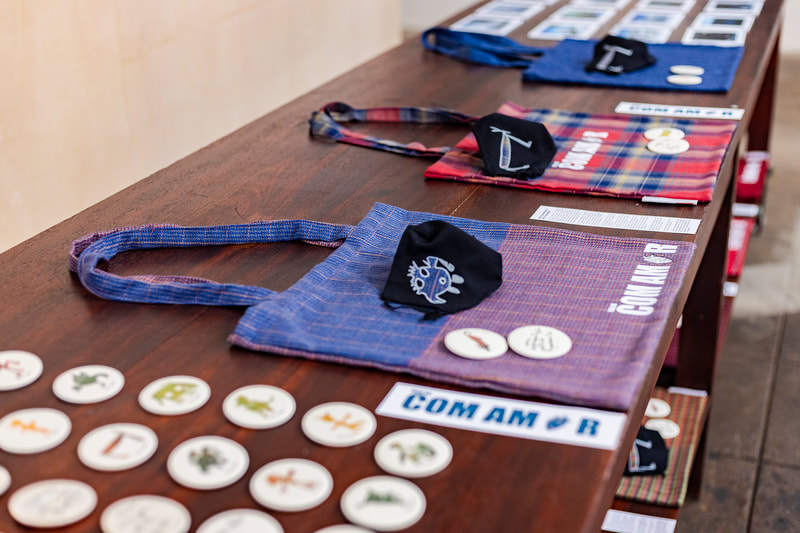|
AMASS Coordinator: University of Lapland
Portugal Coordinator: APECV Research Team: Ângela Saldanha; Célia Ferreira; Raquel Balsa; Teresa Eça Artists: Carlos Sousa; Dori Nigro; Juliana Ferreira |
Local Stakeholder: Centro Alexandre Correia—ASSOL Day care for adults with mental disabilities, Oliveira de Frades.
Local Mediators: Pancho Matias and Anja Mastling Explored Media: typography; silkscreen; photography; design; textile art; engraving |
Study February-May 2020
APECV - Association of Teachers of Expression and Visual Communication is one of the partner entities of the European project “AMASS: Acting on the Margins: Arts as Social Sculpture”.
During the first semester of 2020, we carried out a literature review on the topic in the context in Portugal for the AMASS Project and collected experiences of artistic projects with communities in Portugal. But the results were not very useful for our focus on working with communities using the arts as a means of learning among peers. We discovered that there were a many projects organised by artists, institutions, universities, foundations, artist collectives, etc. , in community contexts, but little systematic reflection published on the projects.
During the first semester of 2020, we carried out a literature review on the topic in the context in Portugal for the AMASS Project and collected experiences of artistic projects with communities in Portugal. But the results were not very useful for our focus on working with communities using the arts as a means of learning among peers. We discovered that there were a many projects organised by artists, institutions, universities, foundations, artist collectives, etc. , in community contexts, but little systematic reflection published on the projects.
Pilot Experience June-December 2020
In May 2020, we contacted an ASSOL group in Oliveira de Frades for the AMASS pilot study in Portugal, because we knew, that we could learn from them, from our previous projects done with this group (Circle project), and actions we did with the DEVAGARSENCADERNADALONGE workshop. We also invited artist Dori Negro to participate.
ASSOL is a solidarity organization in Portugal called the Lafões Social Solidarity Association. APECV has collaborated with ASSOL's caregivers in various educational activities. ASSOL was founded in 1987, at the initiative of a group of people, with different professional backgrounds who wanted to create a local response to serious social situations of people with disabilities in that region. Today it is a Private Institution of Social Solidarity supported by the Portuguese State. At ASSOL, caregivers use a methodology based on Person-Centered Planning and Pedagogy of Interdependence, defending love and affection as the best therapy. ASSOL is part of the international Gentle Teaching network. Its focus is on strengthening fellowship and community for all those they serve - children, adults and families who suffer from mental illness, disability, homelessness, addiction or involvement in the criminal justice system. Pedagogies of emancipation through the arts: Learning from the 'Other'
During June 2020, we visit a group of volunteers from ASSOL to explain the idea. They agreed to do one more experiment with us. We proposed to start by discovering our places of learning and we left a polaroid camera for each of us or each group to take photographs of these places.
At the end of the month we came back, for a conversation about the shooted places of learning. from the conversations with photo elicitation we discovered that in the rawness of light and shadow are unstable places of relationship; that one learns in the family, on television, on the internet school; at work, on the road, in the village; in the river; with the people; with Raquel, with Pancho.
We talked about what we could do next, what we would like to learn and how we could learn from the arts. Our way of learning is a collaborative process, capable of creating new relationships and new ways of understanding the world.
In this way, we have acquired learn deep knowledge about pedagogy from the participants' perspectives.
Such as:
Learning spaces are learning meetings,
and the learning process requires an
affective relationship with space and people.
Our methods, inspired by Paulo Freire's ideas about popular education, reside in relationships structured in humility; trust and love. We learned from the pedagogy of interdependence how to apply companionship and respect for others in collaborative artistic projects (McGee, 2019). Art in the words of one of the participants of the AMASS pilot project in Portugal was defined as:
ASSOL is a solidarity organization in Portugal called the Lafões Social Solidarity Association. APECV has collaborated with ASSOL's caregivers in various educational activities. ASSOL was founded in 1987, at the initiative of a group of people, with different professional backgrounds who wanted to create a local response to serious social situations of people with disabilities in that region. Today it is a Private Institution of Social Solidarity supported by the Portuguese State. At ASSOL, caregivers use a methodology based on Person-Centered Planning and Pedagogy of Interdependence, defending love and affection as the best therapy. ASSOL is part of the international Gentle Teaching network. Its focus is on strengthening fellowship and community for all those they serve - children, adults and families who suffer from mental illness, disability, homelessness, addiction or involvement in the criminal justice system. Pedagogies of emancipation through the arts: Learning from the 'Other'
During June 2020, we visit a group of volunteers from ASSOL to explain the idea. They agreed to do one more experiment with us. We proposed to start by discovering our places of learning and we left a polaroid camera for each of us or each group to take photographs of these places.
At the end of the month we came back, for a conversation about the shooted places of learning. from the conversations with photo elicitation we discovered that in the rawness of light and shadow are unstable places of relationship; that one learns in the family, on television, on the internet school; at work, on the road, in the village; in the river; with the people; with Raquel, with Pancho.
We talked about what we could do next, what we would like to learn and how we could learn from the arts. Our way of learning is a collaborative process, capable of creating new relationships and new ways of understanding the world.
In this way, we have acquired learn deep knowledge about pedagogy from the participants' perspectives.
Such as:
Learning spaces are learning meetings,
and the learning process requires an
affective relationship with space and people.
Our methods, inspired by Paulo Freire's ideas about popular education, reside in relationships structured in humility; trust and love. We learned from the pedagogy of interdependence how to apply companionship and respect for others in collaborative artistic projects (McGee, 2019). Art in the words of one of the participants of the AMASS pilot project in Portugal was defined as:
|
"What cannot be defined turns out to be a mystery. Cruelty is in the image, in the light and in the shadow, that indefinite feeling. I call this art, the way we use it to explain, to demonstrate our feelings" (JC; June, 2020, photovoice results)
|
From the results of the conversations (using photovoice), we have built artistic activities to carry out together.
1. Embroidering cartographies (with artist Dori Nigro)
The first one was a story telling through oral transmission and a performative embroidery action (session of 3 hours) in one of the learning places chosen by the ASSOL group: The Alfusqueiro River.
1. Embroidering cartographies (with artist Dori Nigro)
The first one was a story telling through oral transmission and a performative embroidery action (session of 3 hours) in one of the learning places chosen by the ASSOL group: The Alfusqueiro River.
2. The second and third sessions were held in September 2020 with artists Carlos Sousa and Juliana Ferreira (studio CentroPontoArte). They engaged the group in a Serigraphic and typographic printing workshop as required by the group who wanted to make graphics using the stories and drawings they had been collecting about the traditional tales of the region (Tales of Lafões Lands). The tales were popular stories with fantastic creatures and terrible quests.
|
In end October 2020, because of the pandemic situation we could not visit the group, so we had to find other ways of collaboration, we stayed in contact by email and exchanging packages.
The ASSOL group invited our team to participate in the Collaborative Works on the Legends of Lafões Land. Raquel; Dori; Célia; Teresa and Ângela remixed drawings about the legends sent out by post to us and we forwarded it again to ASSOL. Visual Poetry of Dori from a drawing by Rogério Paulo on Ponte do Cunhedo. Animation of Raquel from a drawing by Deolinda We were invited to visit the Assol's exhibition legends of Lafões Land, at the Municipal Library of Oliveira de Frades (November 2020) |
|
We looked for a different place to exhibit the process and the products, Casa da Imagem in Vila Nova de Gaia, a photography museum, accepted to host the exhibition: 'learning places', where the photographs taken by all were exhibited from December 10, 2020 to February 10, 2021. Photographs and videos of the exhibition were sent by phone to the participants, so they could see how the exhibition was being settled down.
read more |
In This Exhibition the Product Manifesto Isolate with Love was presented
In the last joint sessions the designers from our team proposed the group to make the label : ‘Isolate with Love’ and to produce a kit, that should be also a Manifesto about attention, affection, patience, rigour and time that an object made individually and by hand takes, to represent care of others, dress affections and spread hope. Assol participants as well as APECV team loved the idea.
Together, via email communication, we choose two of the drawings of Legends of Lafoes Land who served to make 2 pins; 1 bag and a mask, and with the sponsorship of Portuguese textile company TEXIBÉRICA a series of 50 kits was produced.
read more
Together, via email communication, we choose two of the drawings of Legends of Lafoes Land who served to make 2 pins; 1 bag and a mask, and with the sponsorship of Portuguese textile company TEXIBÉRICA a series of 50 kits was produced.
read more
By mid December 2020 we were able to visit the group in ASSOL, we brought the kits, so they could sell it during Christmas and keep the money to buy materials for ASSOL. In the last visit we talked about the pilot project and filled evaluation questionnaires. The results of the focus group conversation and questionnaires were very positive. The participants said they learned skills; ways of expressing their stories visually; and making their stories visible to the others.
